Hello and welcome to Work Week, the podcast where we tackle one big question about the rapidly evolving workplace, explore what the research says about the issue, and explain what it all means for you.
I’m Dr. Kelly Monahan, Managing Director at The Upwork Research Institute. What you’re hearing is a digital proxy of my voice, created by our team with the help of AI.
Today, we’re discussing a topic that’s pushing the boundaries of what it means to code. The big question for this episode is: Will vibe coding replace software engineers — or redesign their role?
Let’s start with the basics.
Vibe coding is the process of building software applications using natural language processing — often with an AI agent — rather than manually writing every line of code. Vibe coding can be used to generate code, prototypes, user interfaces, or even entire apps. All users need to do is describe the software they want to build. And AI handles the rest.
It’s less about syntax, and more about shaping the vibe — the look, feel, and functionality — of what’s being built. This shift in software development creates a collaborative, iterative, real-time conversation between human creators and AI.
Think of it this way: Traditional coding is like assembling IKEA furniture by yourself — instructions, tools, and all. Vibe coding is like telling your AI assistant, “I want a cozy reading nook with Scandinavian vibes, adjustable lighting, and a modular shelf system.” You interact with the AI conversationally, and it delivers a near-finished product you can then tweak.
This shift has the potential to be truly transformative. Gartner, for one example, predicts that by twenty twenty-eight vibe coding tools will be responsible for creating forty percent of all new production software in enterprises.
So the question on everyone’s mind is: what happens to software engineers in this new world?
At The Upwork Research Institute, we’ve been monitoring how AI impacts technical work found through our platform. What we’re seeing is that, yes, demand is going down for developers who write standard, repetitive code — the kind of tasks at which AI excels. But for experienced developers doing highly complex tasks, and who are integrating AI tools into their workflows — demand is staying strong. And, in some cases, demand is growing.
Upwork platform data shows that freelancers who work on projects that require coding skills for at least one-quarter of their work are now earning eleven percent more than they were in November twenty twenty-two — the month ChatGPT launched.
This data indicates that clients still want developers — but they want them for higher-order tasks. For integration. For architecture. For creative problem-solving. For work that requires judgment, not just output.
Here’s how the role of developers is shifting given the rise of vibe coding and other AI technologies.
First, developers are now also prompt engineers. They’re learning how to craft clear, effective inputs that AI tools can efficiently analyze and interpret. This is both a technical and a linguistic skill. The more specific and accurate the prompt, the better the AI output. This is an entirely new skillset many developers have built in recent years.
Second, developers are overseeing — not just creating. AI can generate code, but that code still needs to be reviewed. Bugs still happen. Logic errors still exist. Security vulnerabilities still creep in. So developers have to step into the role of validator — making sure that what the AI produces is functional, scalable, and safe. Checking AI’s output is one of the fastest-growing demand areas we see on the Upwork platform today.
Third, developers are still needed to enforce quality and standards. An AI tool may be capable of writing code, but the tool doesn’t understand your organization’s technical stack, design systems, or performance requirements. Developers are still responsible for ensuring consistency and accuracy across the codebase.
Fourth, and this is key — developers are still the architects. AI can generate pieces of a system, but it doesn’t have the high-level view. AI isn’t designing the structure of your application. It’s not making decisions about what data model to use or how to best connect your frontend and backend services. That’s still the work of experienced engineers.
And finally, developers are the ethical compass. As more software is AI-generated, organizations need people — not simply machines — to decide what should be built, not just what can be built. Developers help shape how AI tools are used, where boundaries are drawn, and how to make sure systems are inclusive, responsible, and aligned with the organization’s values.
Developers aren’t disappearing. Far from it. But the role is changing, expanding, and becoming more strategic.
And for business leaders, this shift carries big implications.
Organizations are no longer simply hiring coders. They’re hiring orchestrators. People who can guide AI, who can shape systems, and who can translate abstract ideas into working, scalable solutions — quickly.
So if you're building a tech team right now, here’s something to consider.
Performance is no longer about how many lines of code someone can write in a day. That used to be a helpful — if imperfect — way to measure productivity. But today, this information signals very little about value. The real differentiators are how clearly someone can prompt AI to generate useful results, how well they can review and improve what the AI delivers, and how effectively they can collaborate with both teammates and AI systems.
This change is also creating opportunities to engage a broader range of contributors in software development — especially freelancers.
Our data suggests that freelancers are adapting quickly and effectively to this new model of work. Upwork customer insights show that seventy-one percent of the time, freelancers are using AI to augment their abilities — not to automate everything. This means freelancers are using AI tools to become faster, more accurate, and more strategic — not to remove themselves from the work entirely.
Here’s an example: Imagine a freelance developer is asked to create a simple website form — something like a user login or a newsletter signup. Instead of building it line by line from scratch, the freelancer might use AI to generate the first version of the code in seconds. But that’s just the starting point. The freelancer can then go on to refine the design, customize the behavior, check for security issues, and make sure the deliverable aligns with the client’s goals. The AI handles the tedious setup — and the freelancer applies their judgment, creativity, and expertise to make it work.
This is the likely future. Not "engineers versus AI." But "engineers with AI."
Let’s wrap, as we always do, with an action step you can implement immediately and a question to reflect on throughout the week.
For our action item this week: Start a vibe coding experiment.
Pick a small project — a personal tool, a utility script, a simple web app — and try initiating the project using only natural language prompts in an AI development tool. You can use something like Claude or OpenAI’s Codex. Describe what you want. See what the tool produces. Then, act like the orchestrator — refine, review, validate. Try multiple prompts. Test edge cases. Look for security holes. In other words — step into the future role of a software developer. Even if you’re not a developer or lack technical engineering skills, you can experiment with vibe coding and collaborate with a developer to carry the project through to completion.
If you’re a leader, try this with your team. Make it a challenge. A mini-hackathon. This has the potential to result in a working product, as well as to give everyone involved a clearer picture of how your team may collaborate with AI in the coming years.
Now, here’s a reflection question to carry with you: Are you preparing yourself — or your team — to lead in a world where technical expertise is no longer only about writing code, but about shaping and stewarding the code that AI builds?
This is the deeper shift behind all the headlines. While tools are advancing and development is speeding up, the more fundamental change is in how software gets built and who shapes the process. Software engineering roles are transforming — shifting from hands-on coding to guiding AI, reviewing outputs, and ensuring that what’s built aligns with broader technical and business objectives.
At The Upwork Research Institute, we’ll continue tracking this transformation closely. Because while the tools are changing fast, the deeper questions — about what knowledge workers are uniquely suited to do — are more important than ever.
Thank you for tuning in to Work Week. I’m Kelly Monahan and if you found this episode helpful, I’d love for you to share it with a friend or leave a quick review. And make sure to subscribe to the show to stay updated on the latest trends impacting the future of work.







.png)
.png)
.png)
.png)
.png)
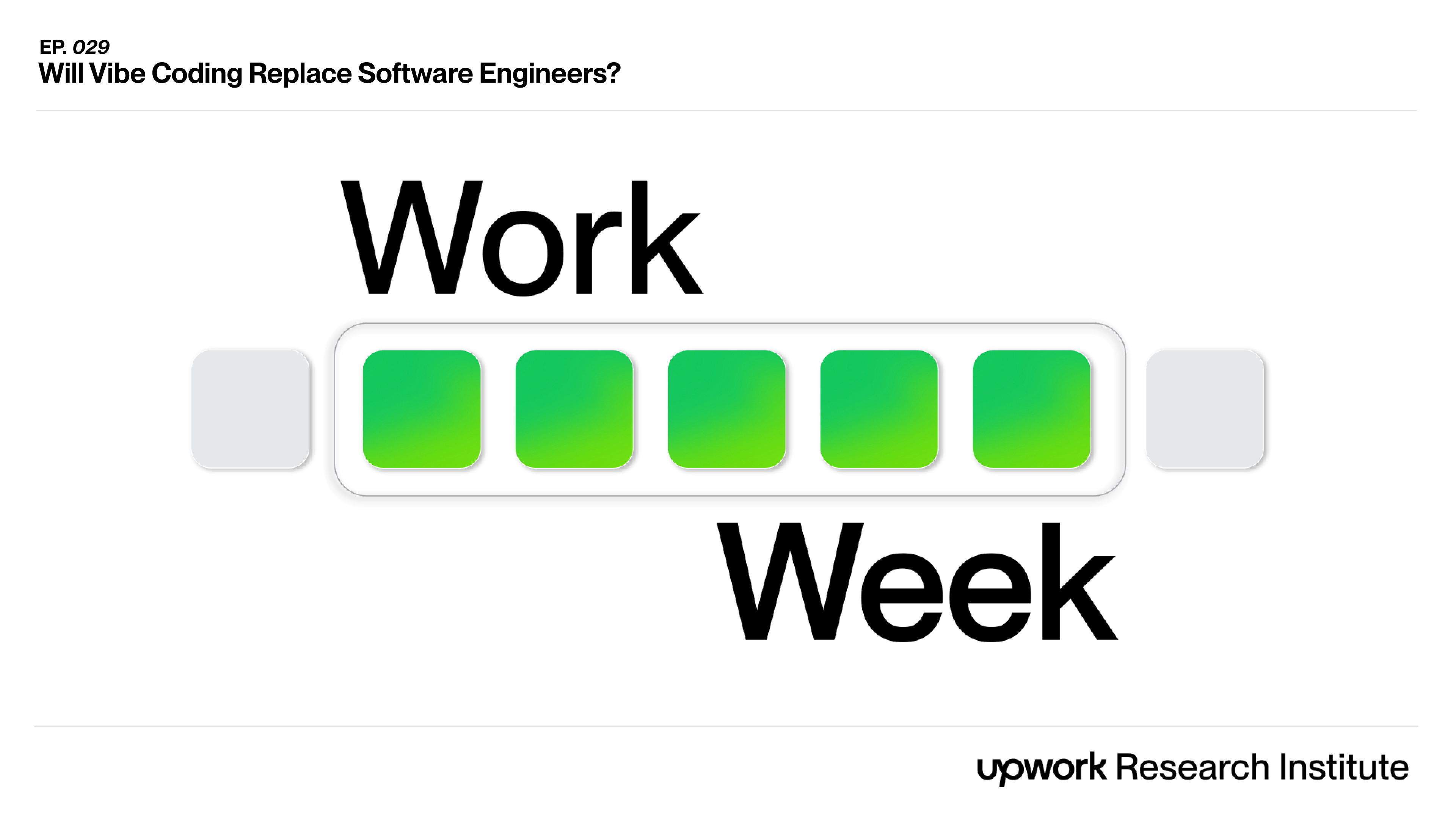


.png)

-p-500.jpg.png)

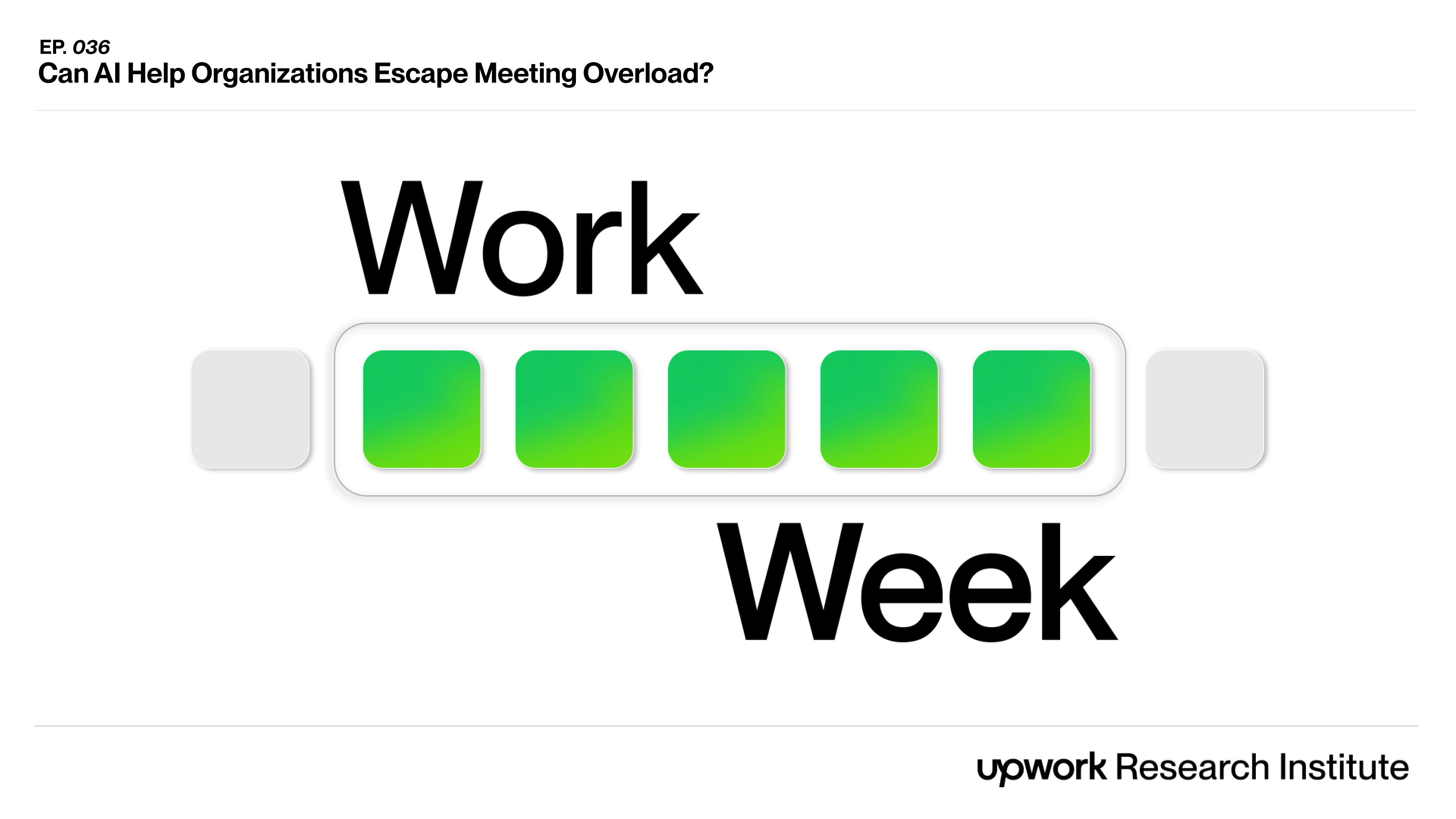

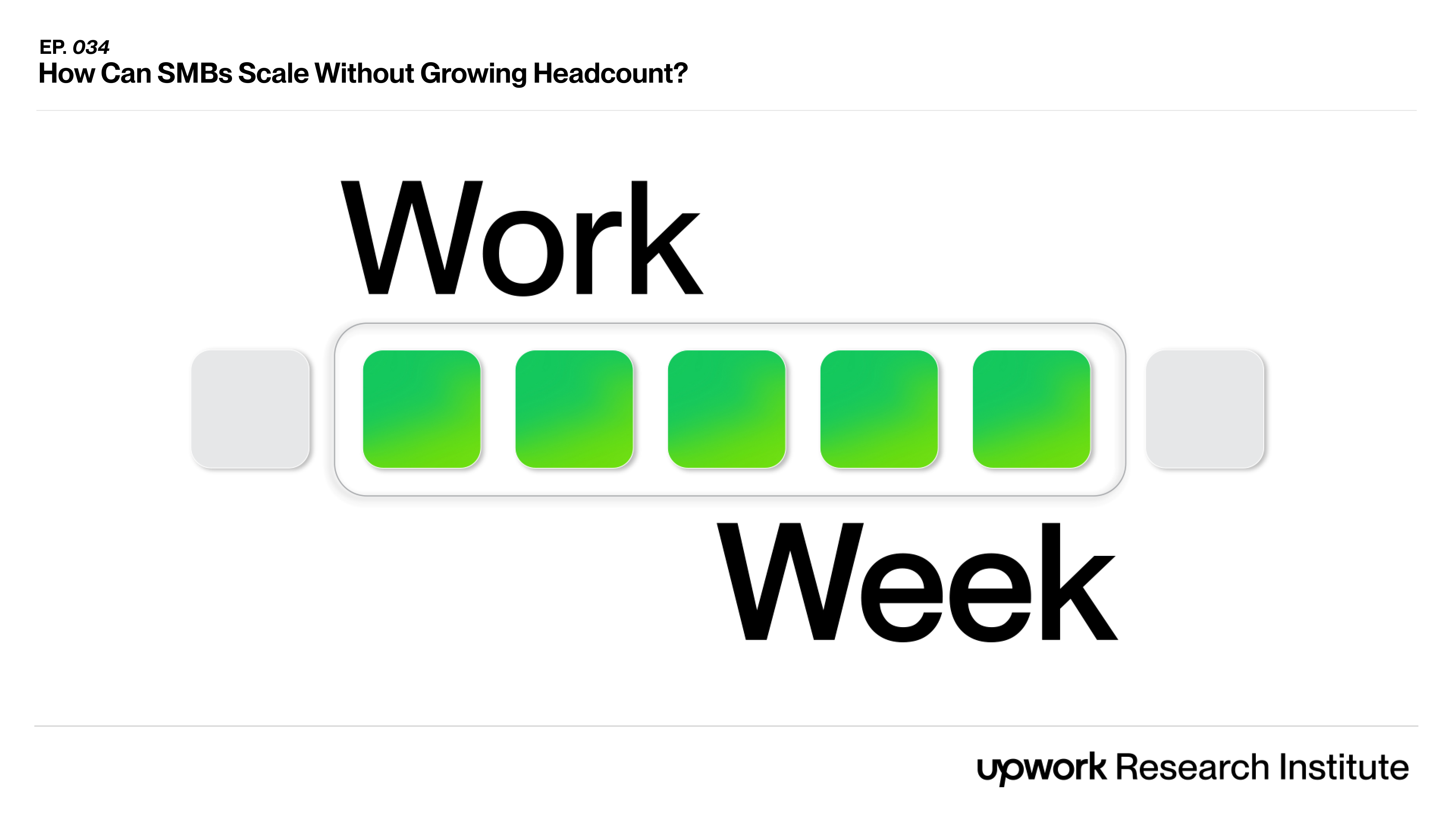
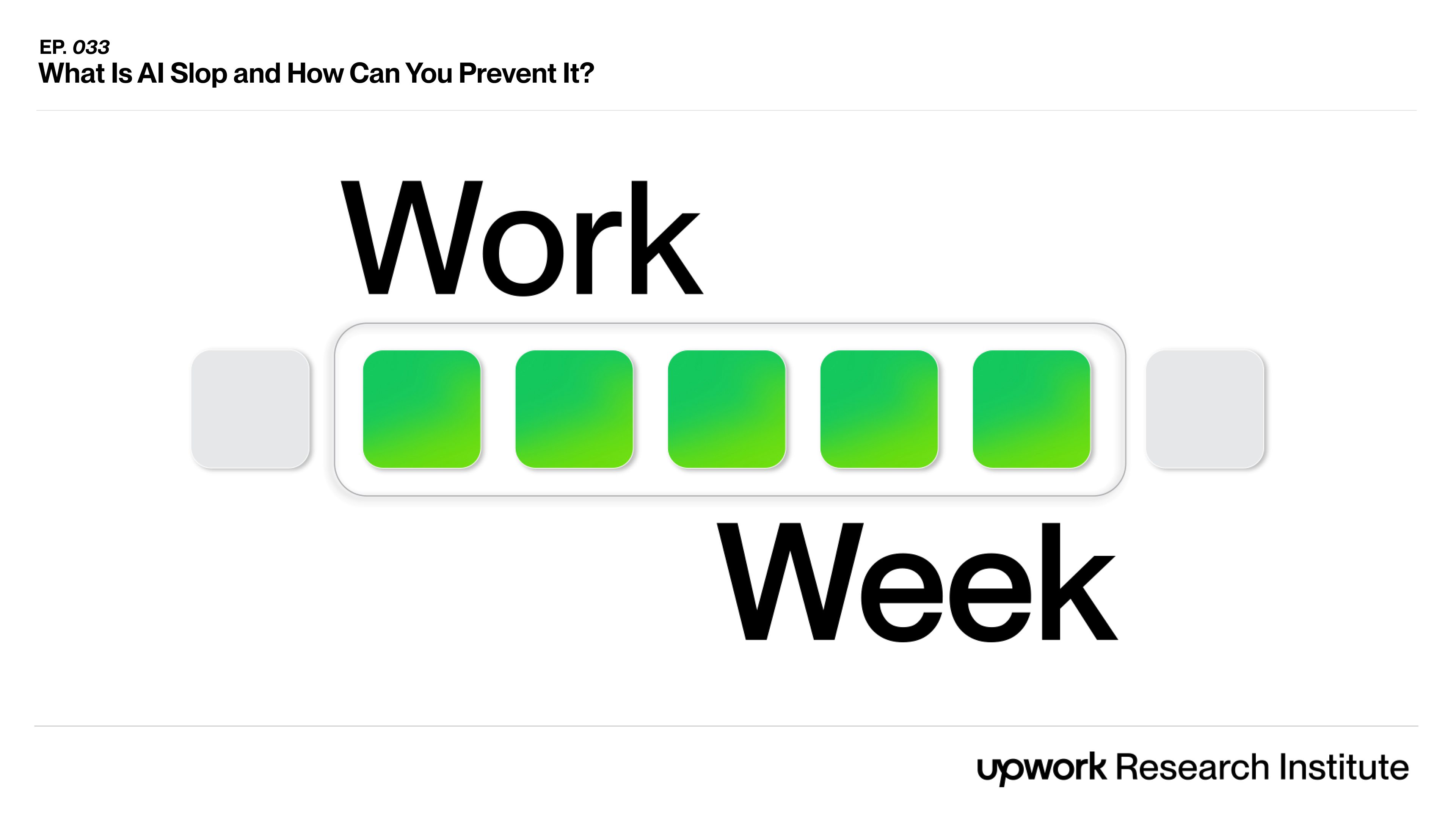
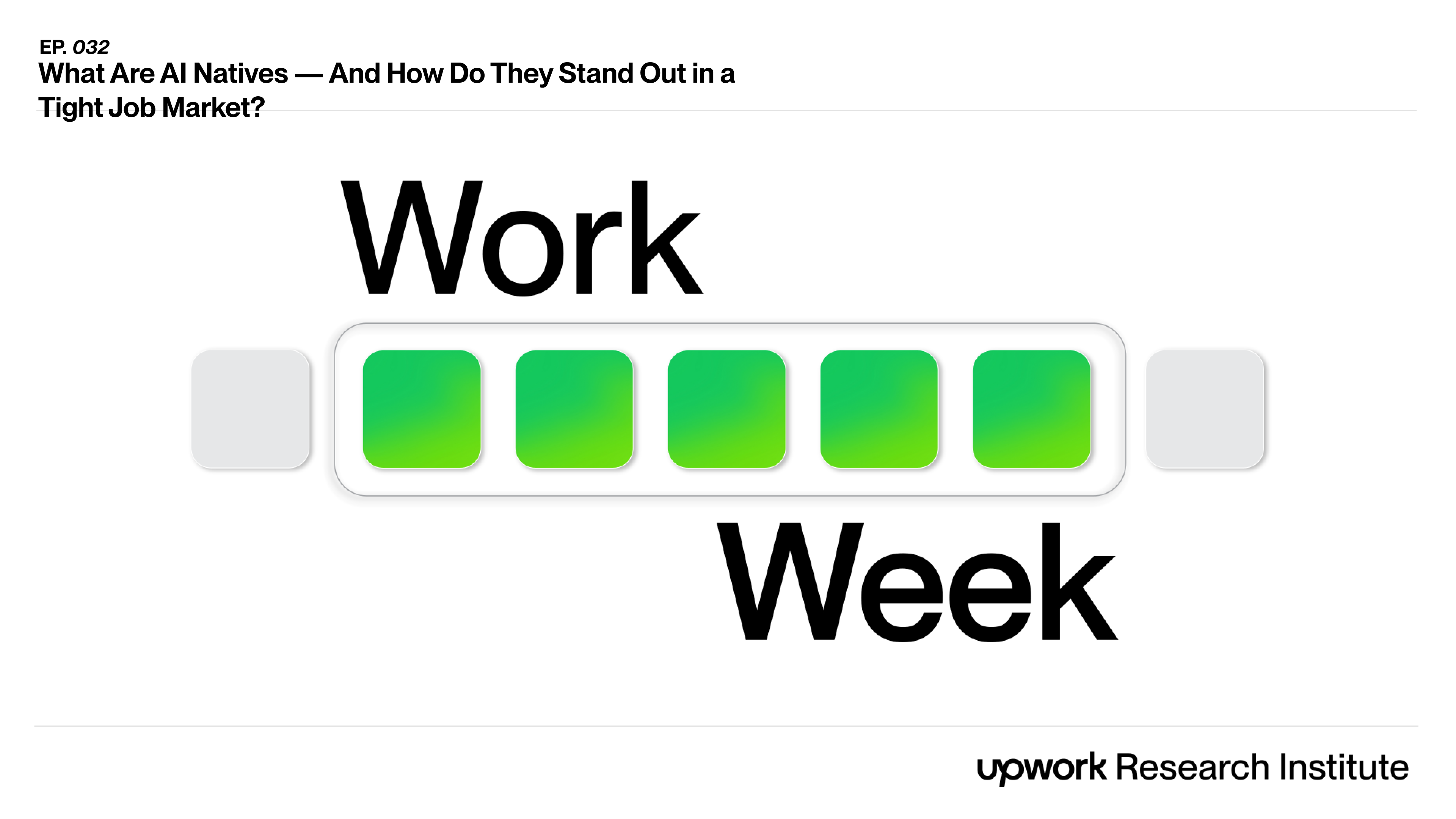
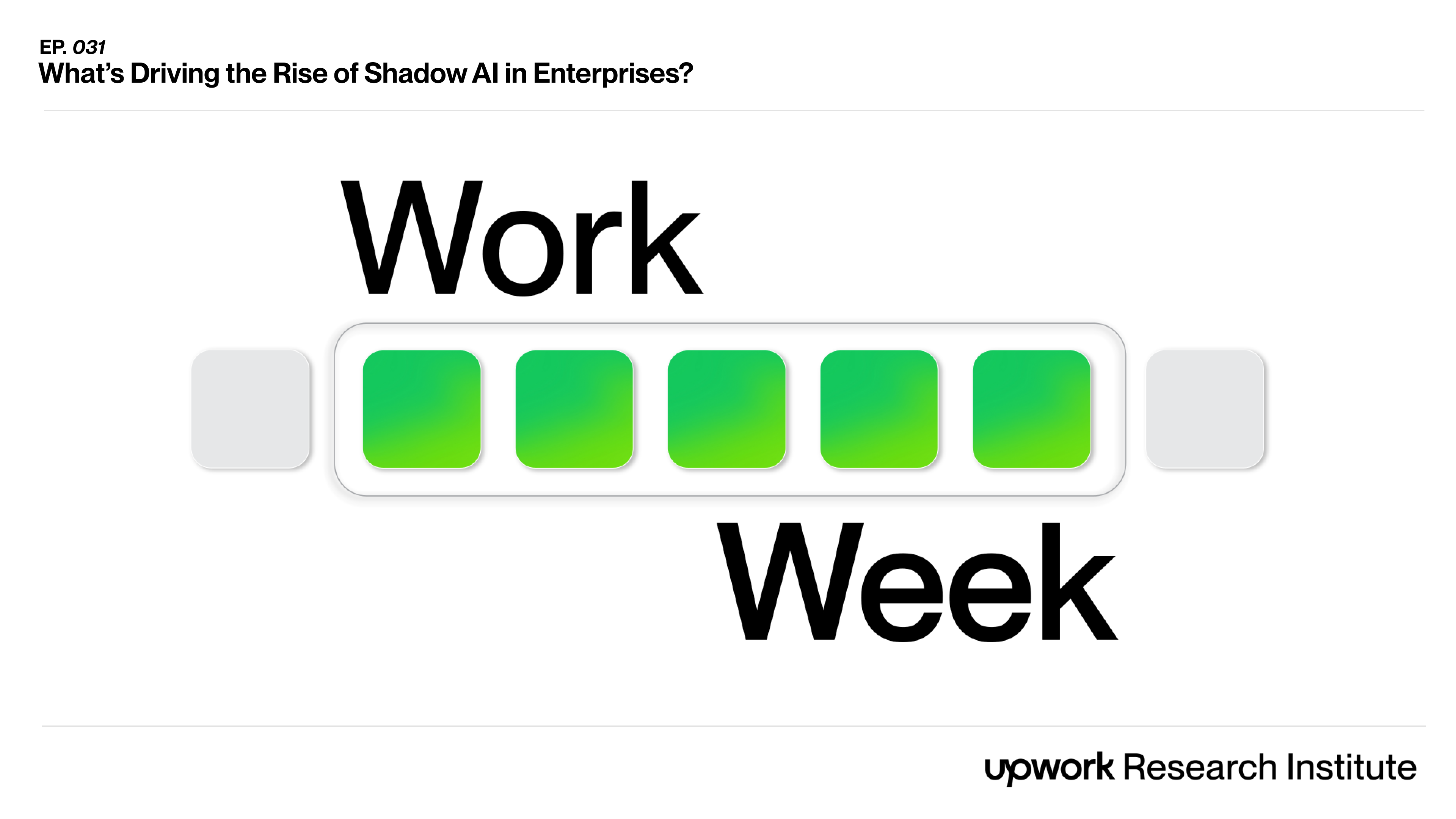
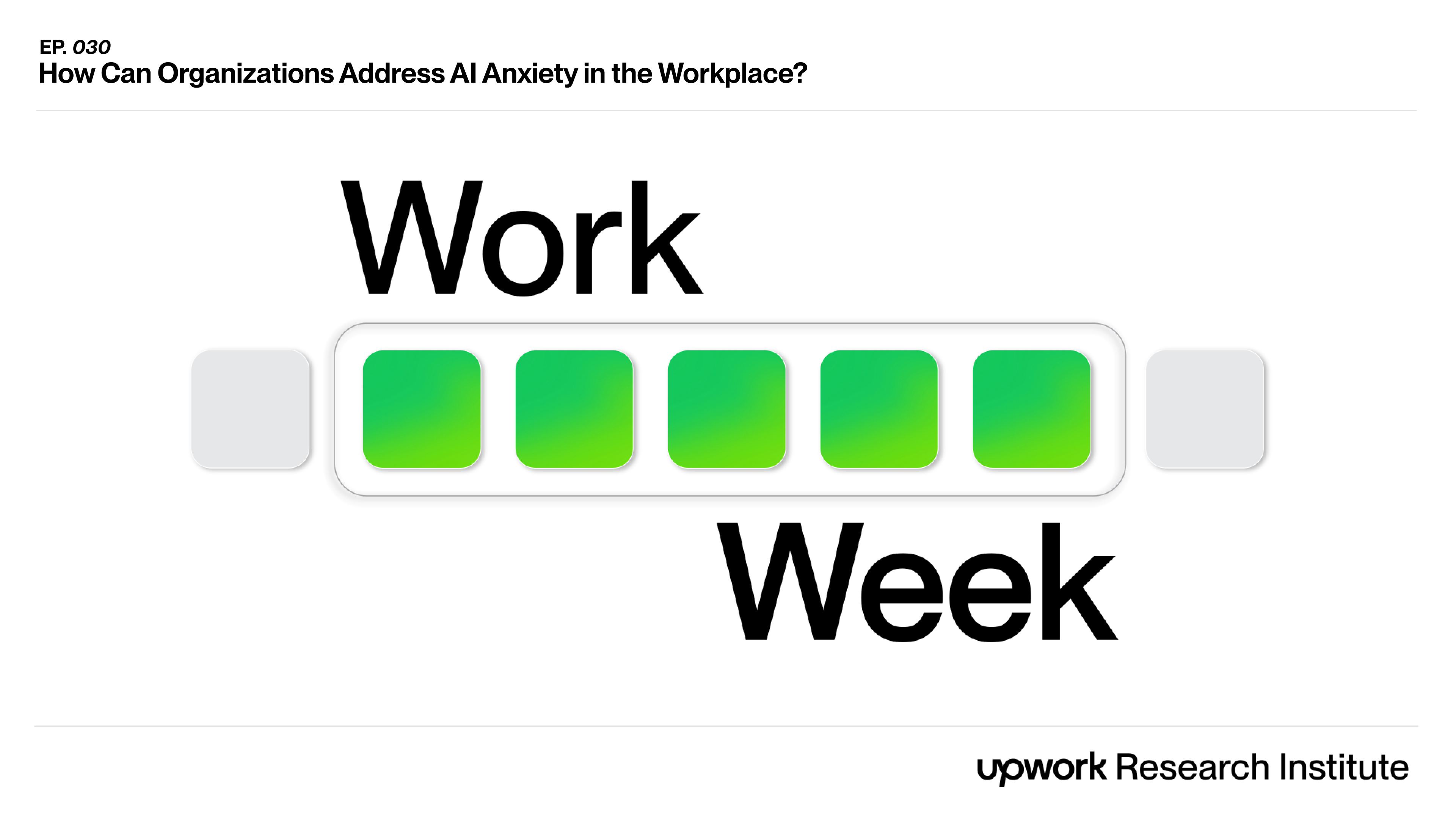
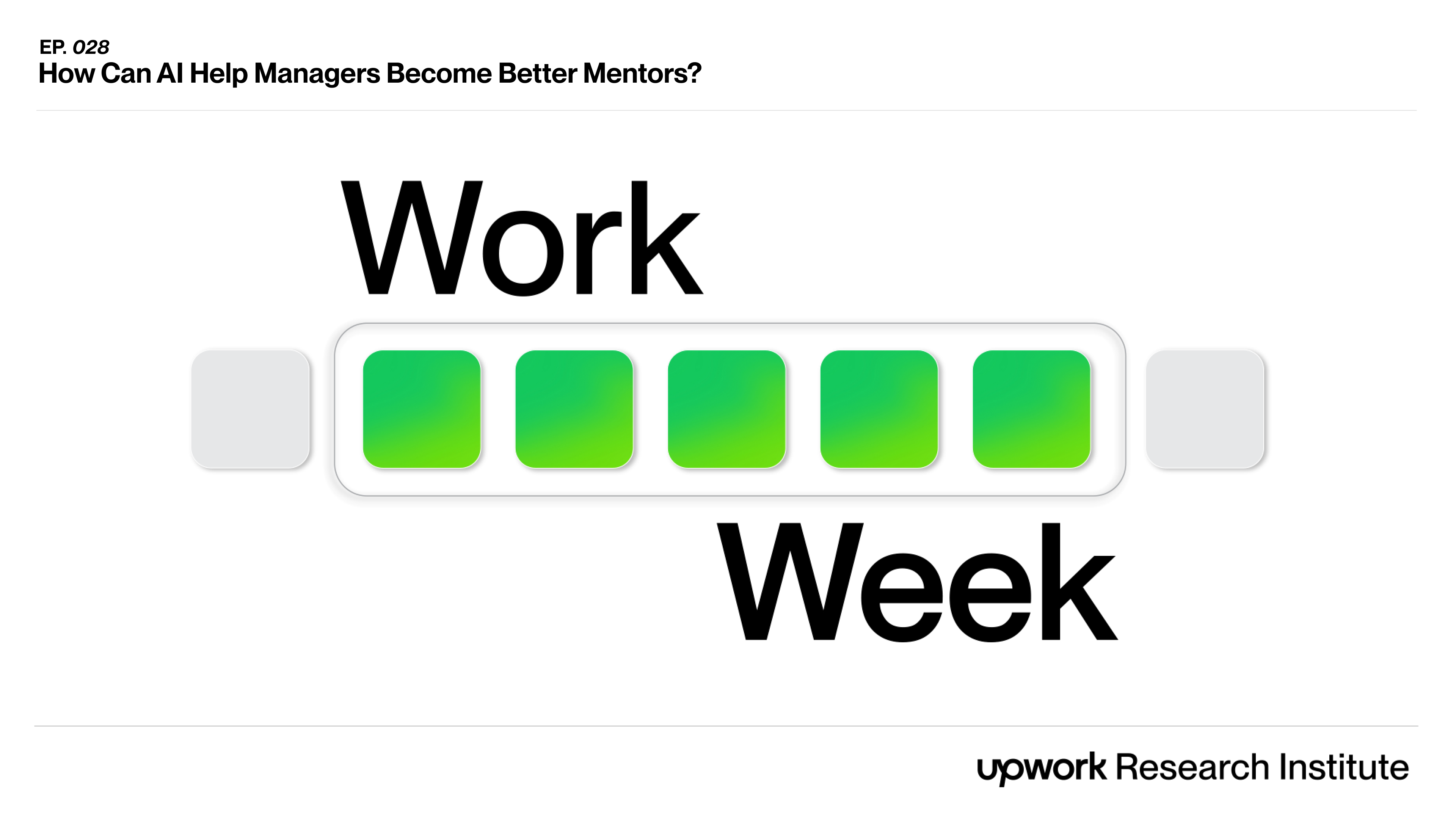

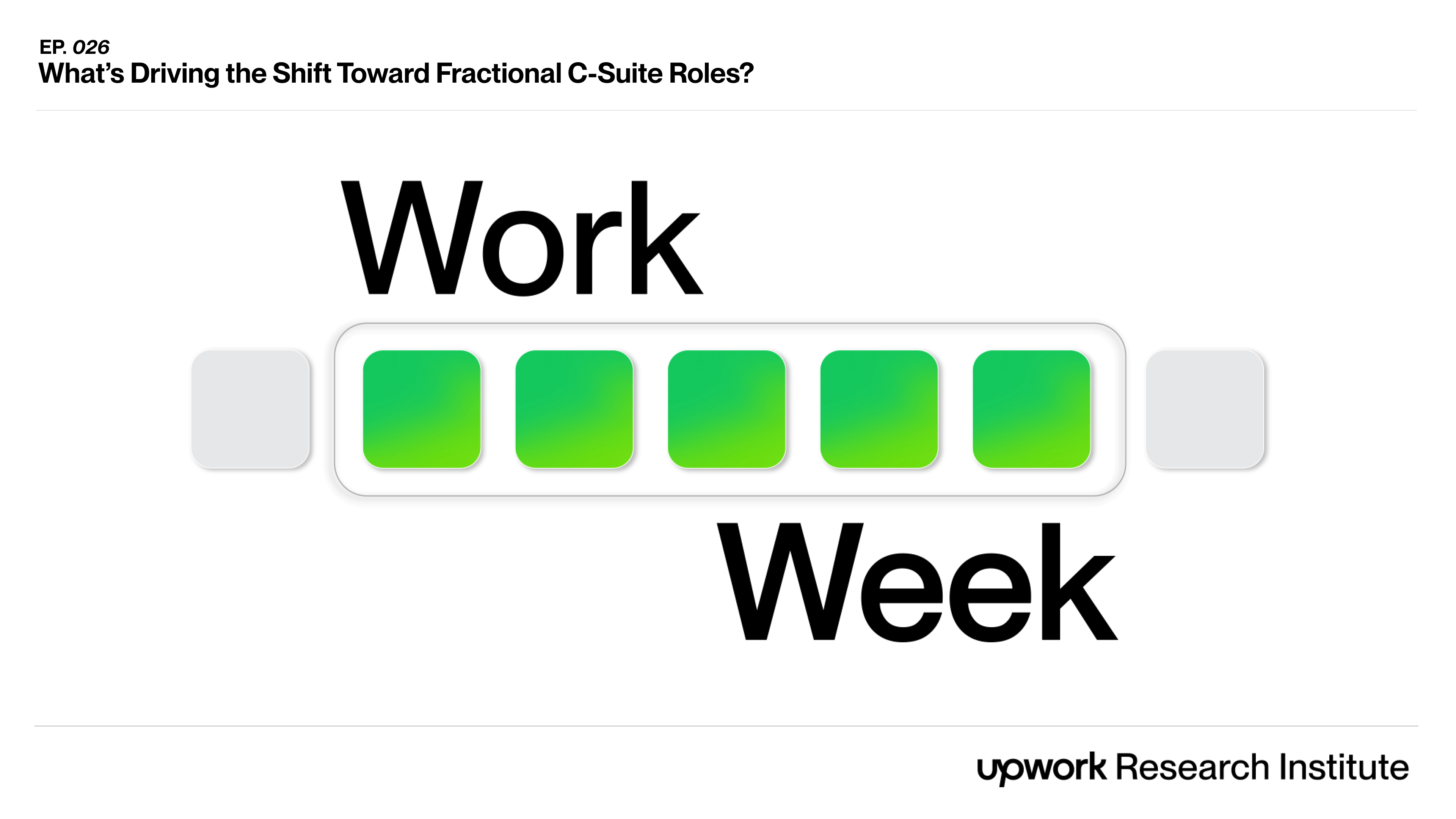
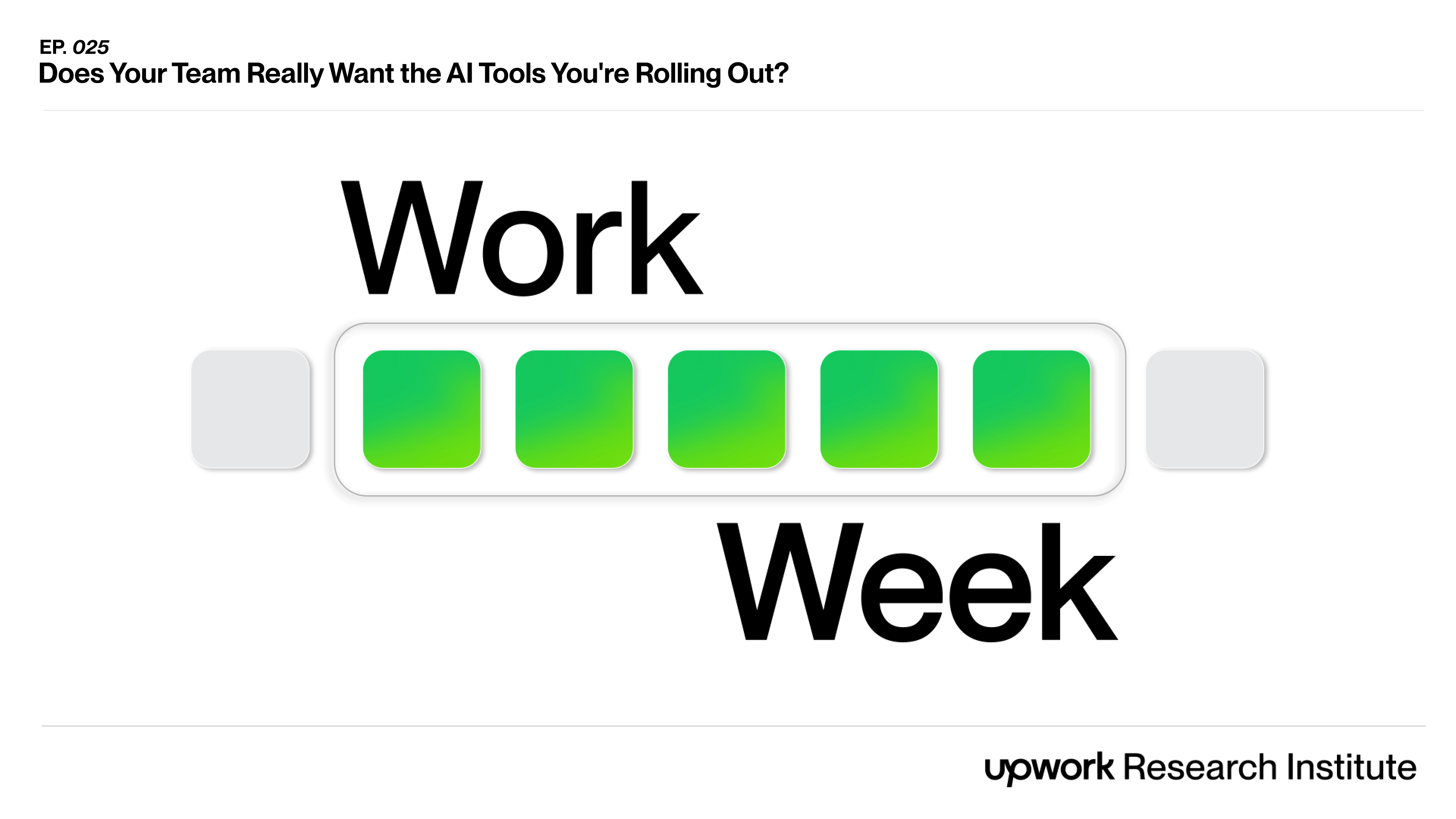
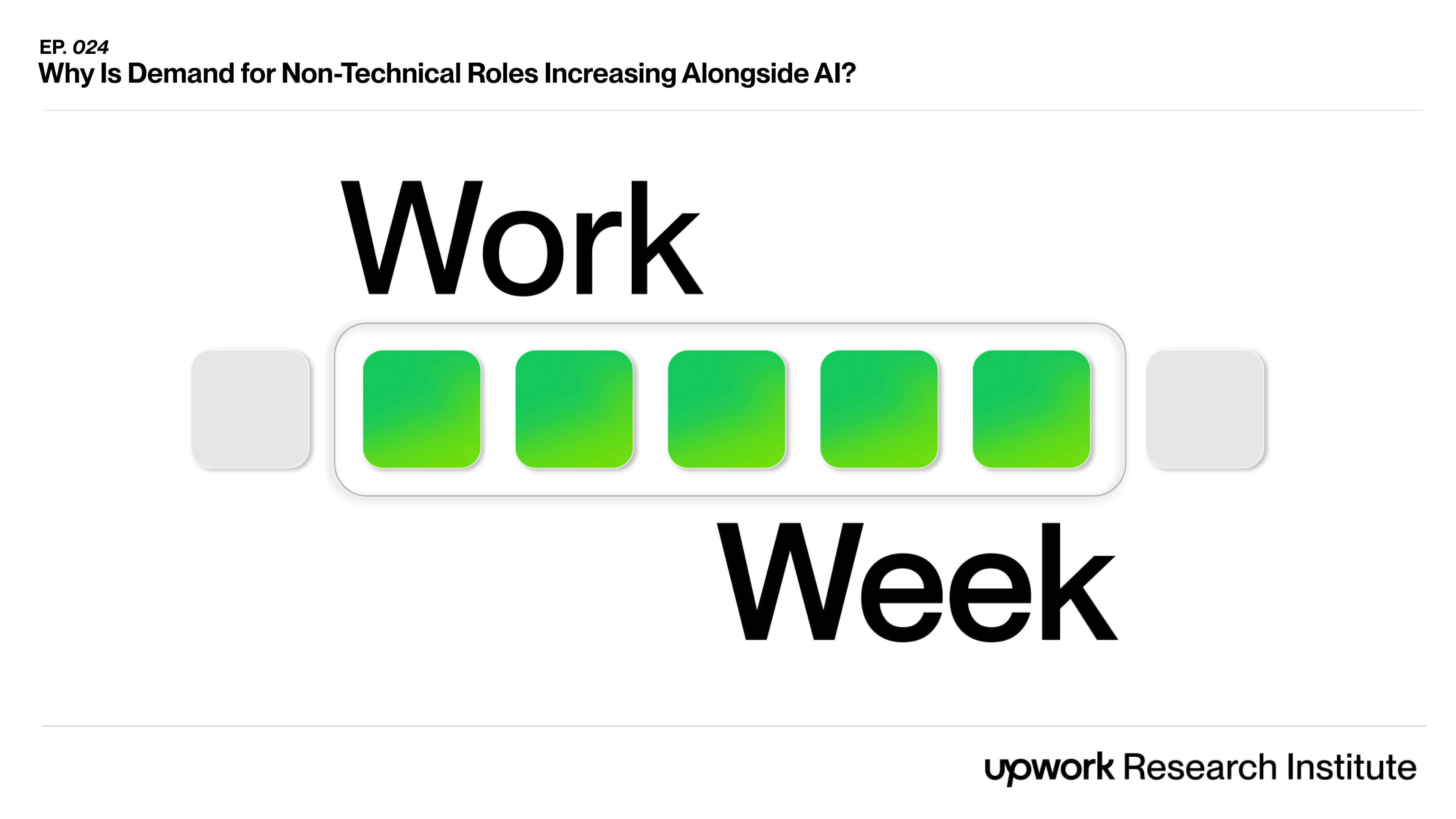
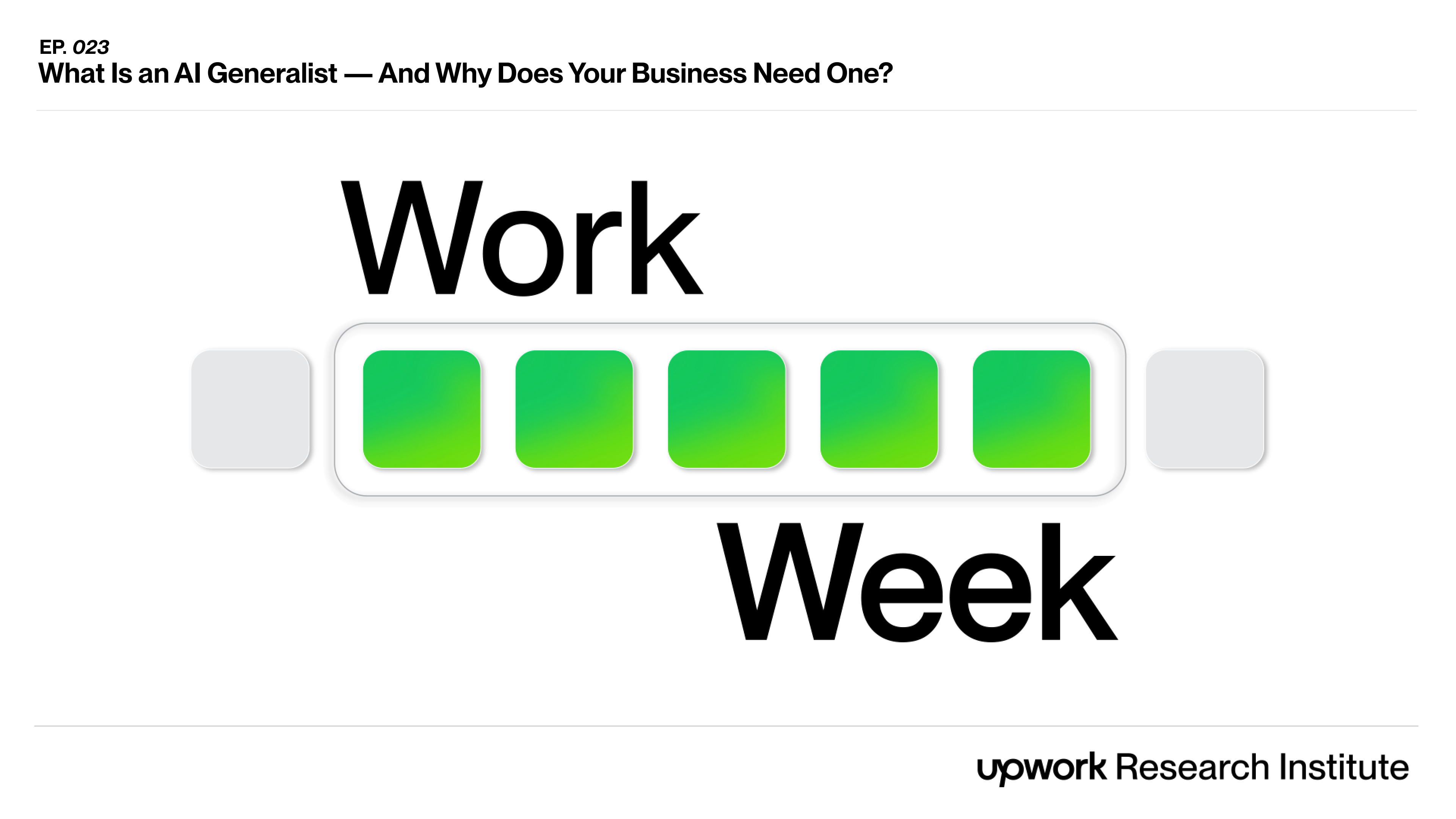
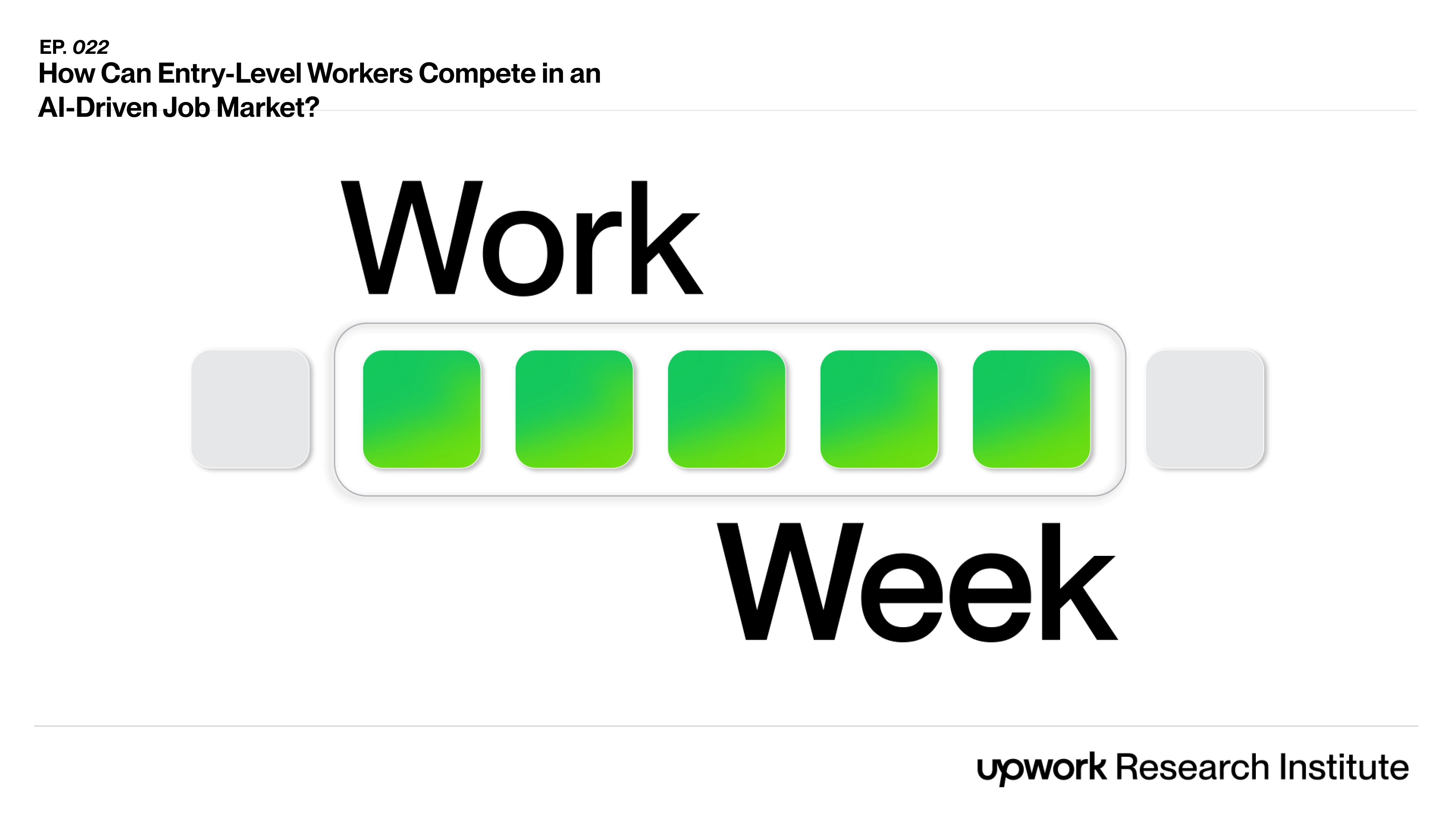

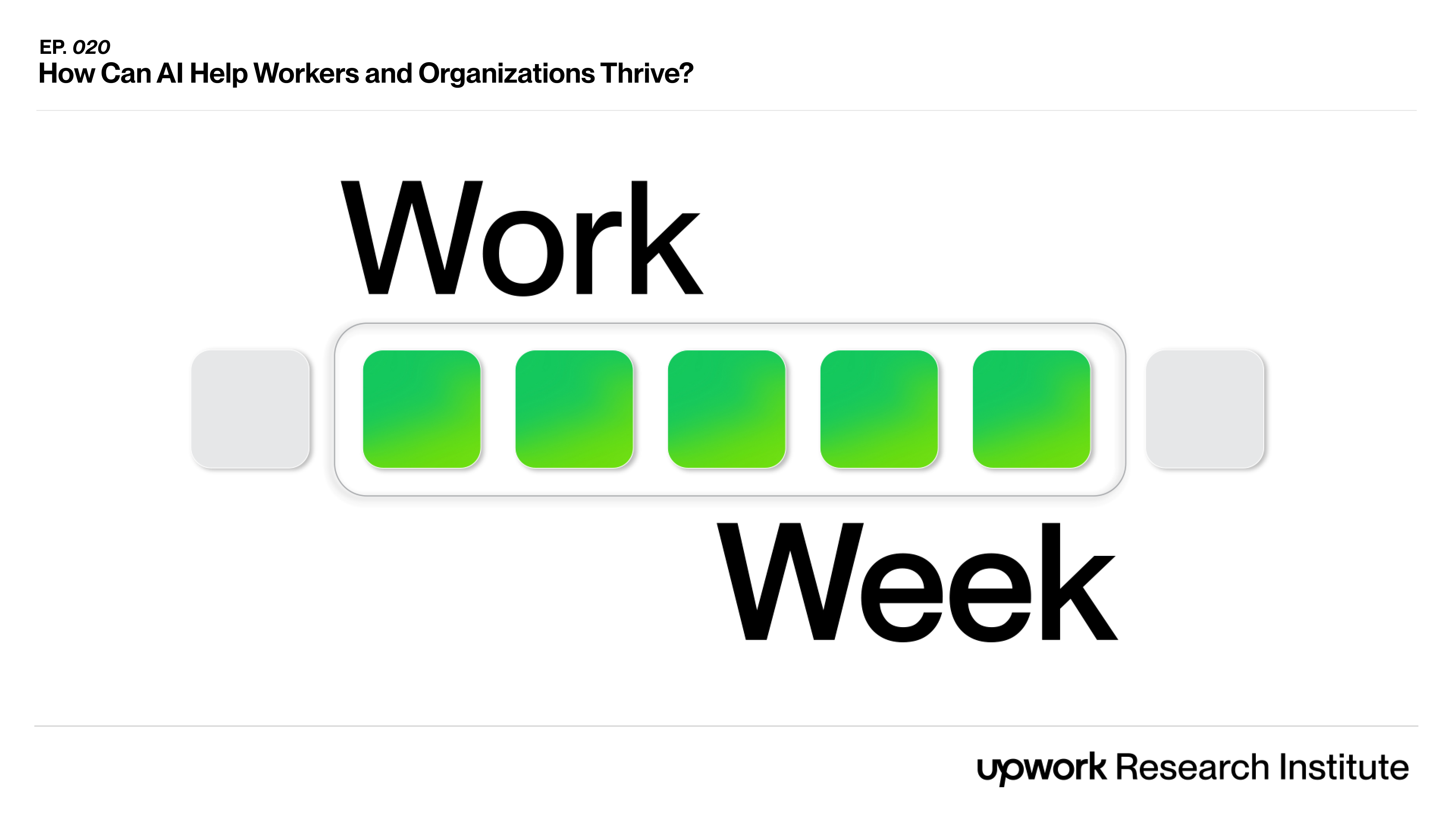
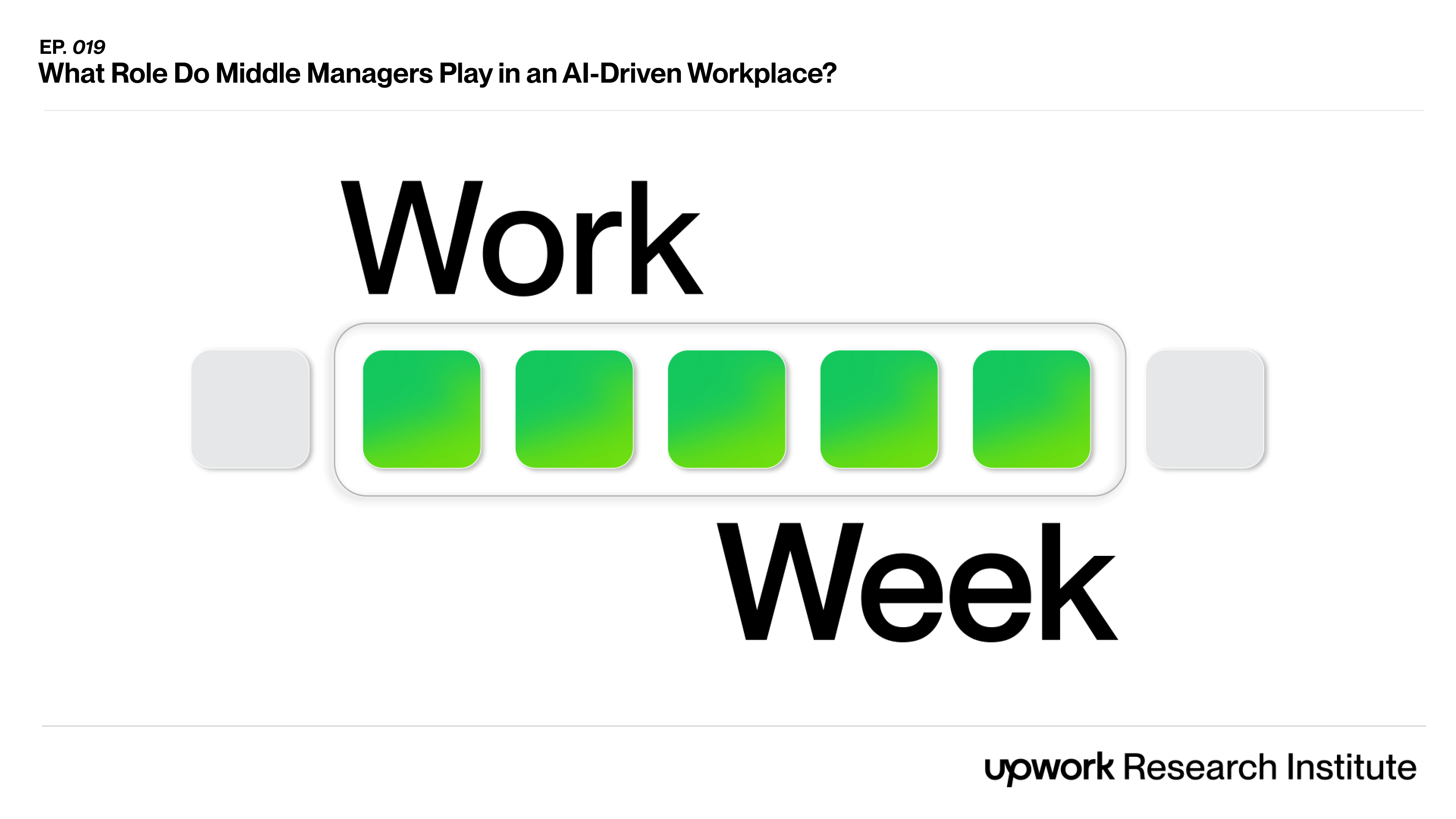
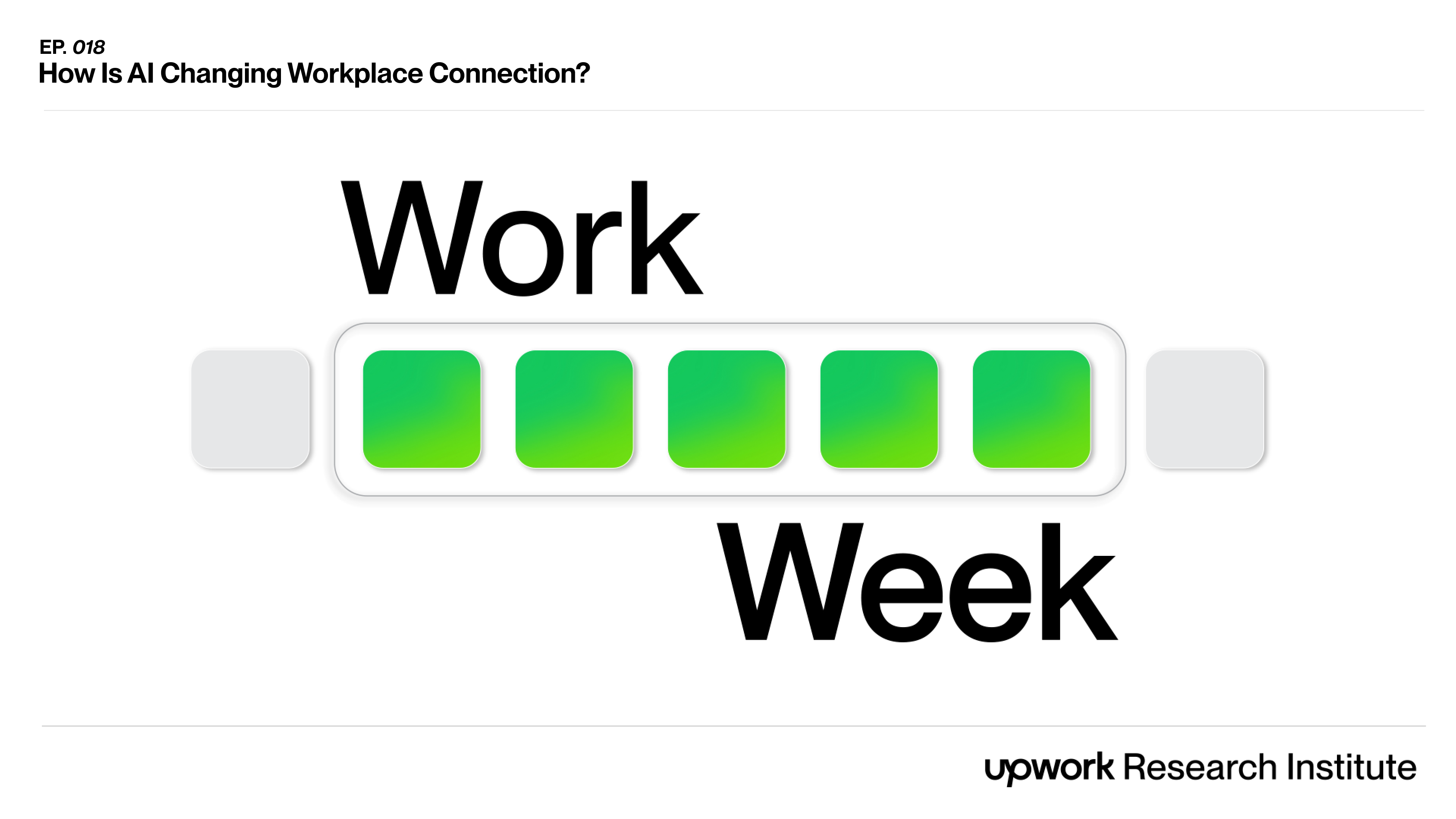

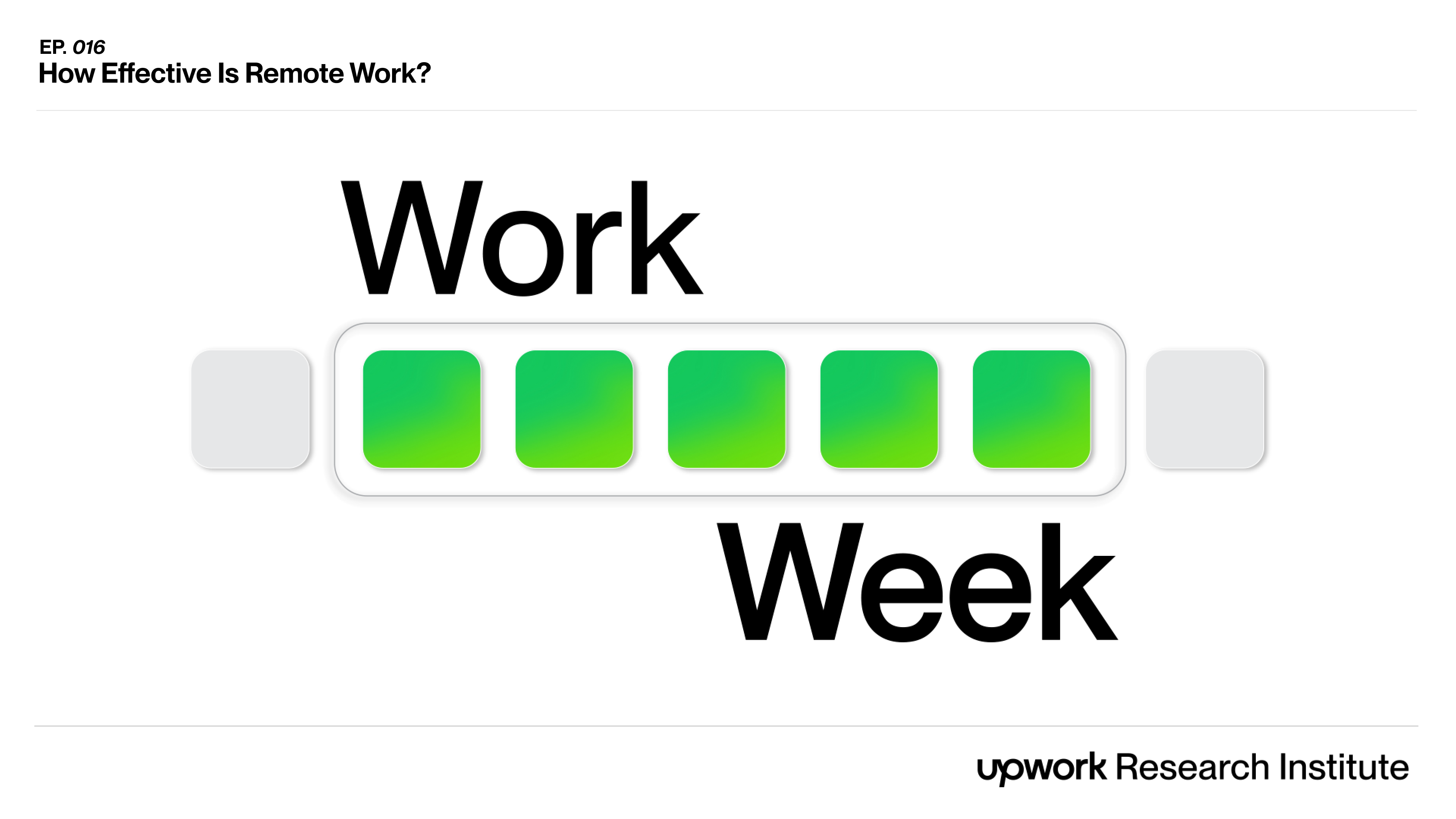
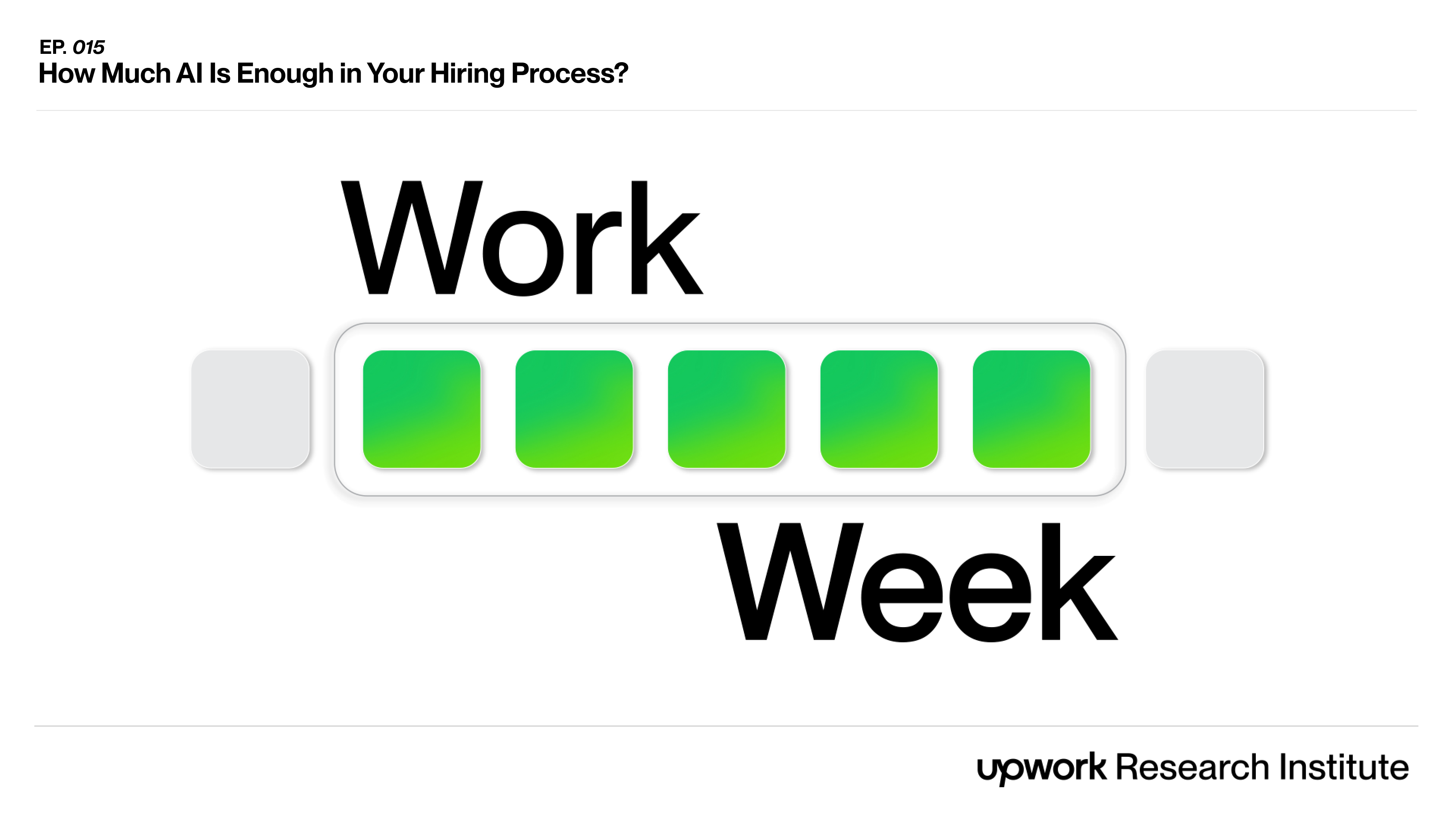

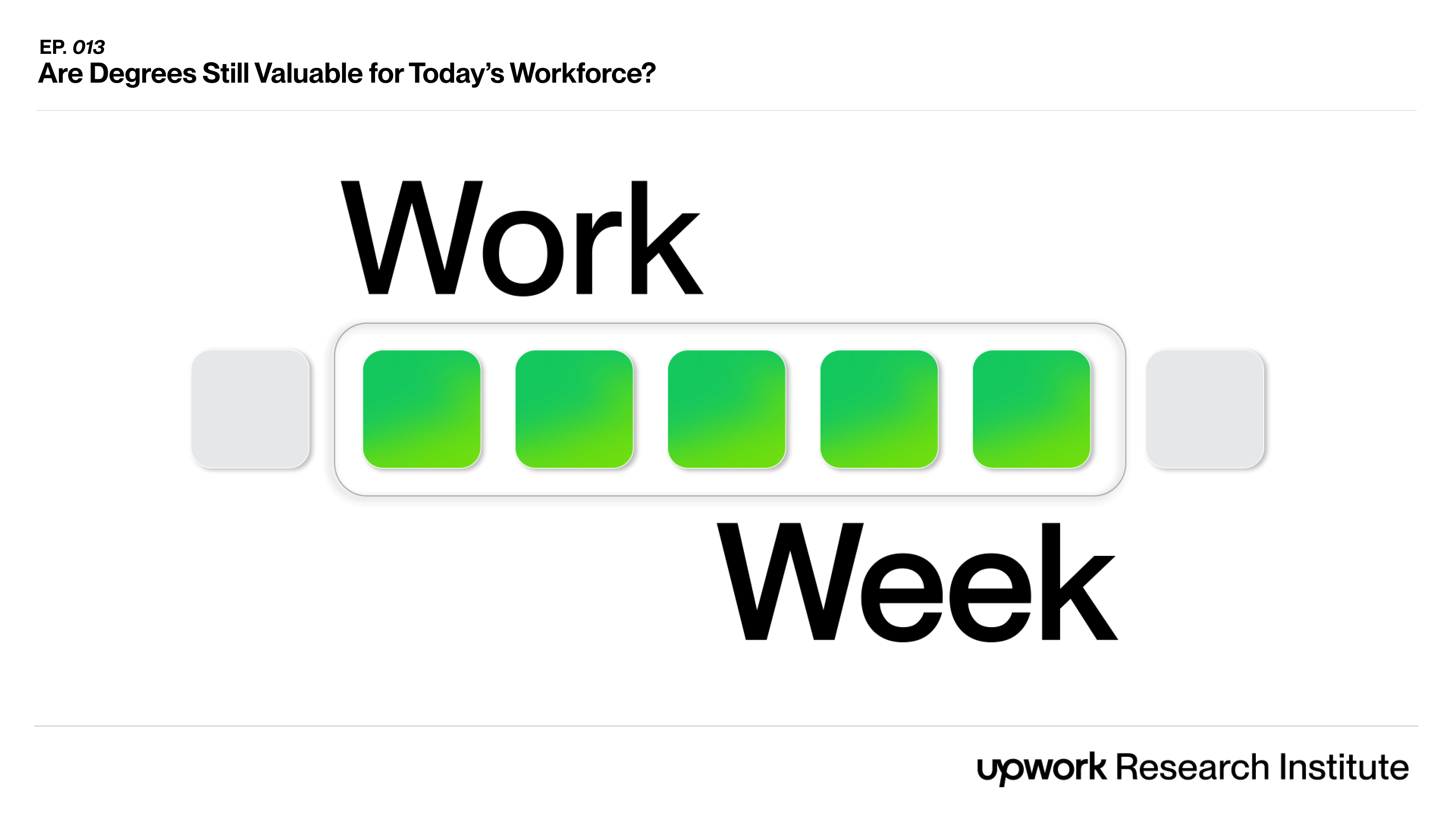
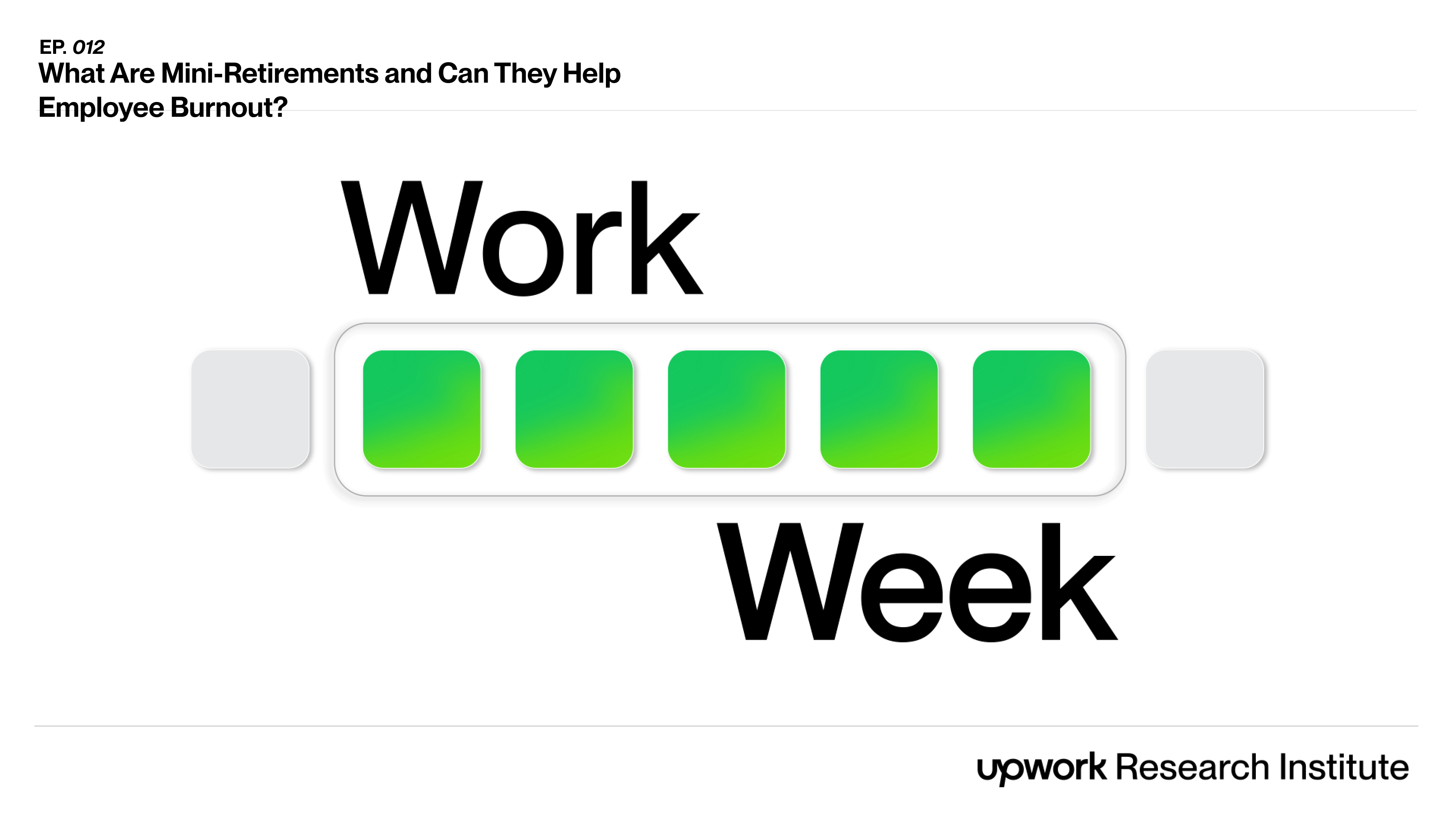
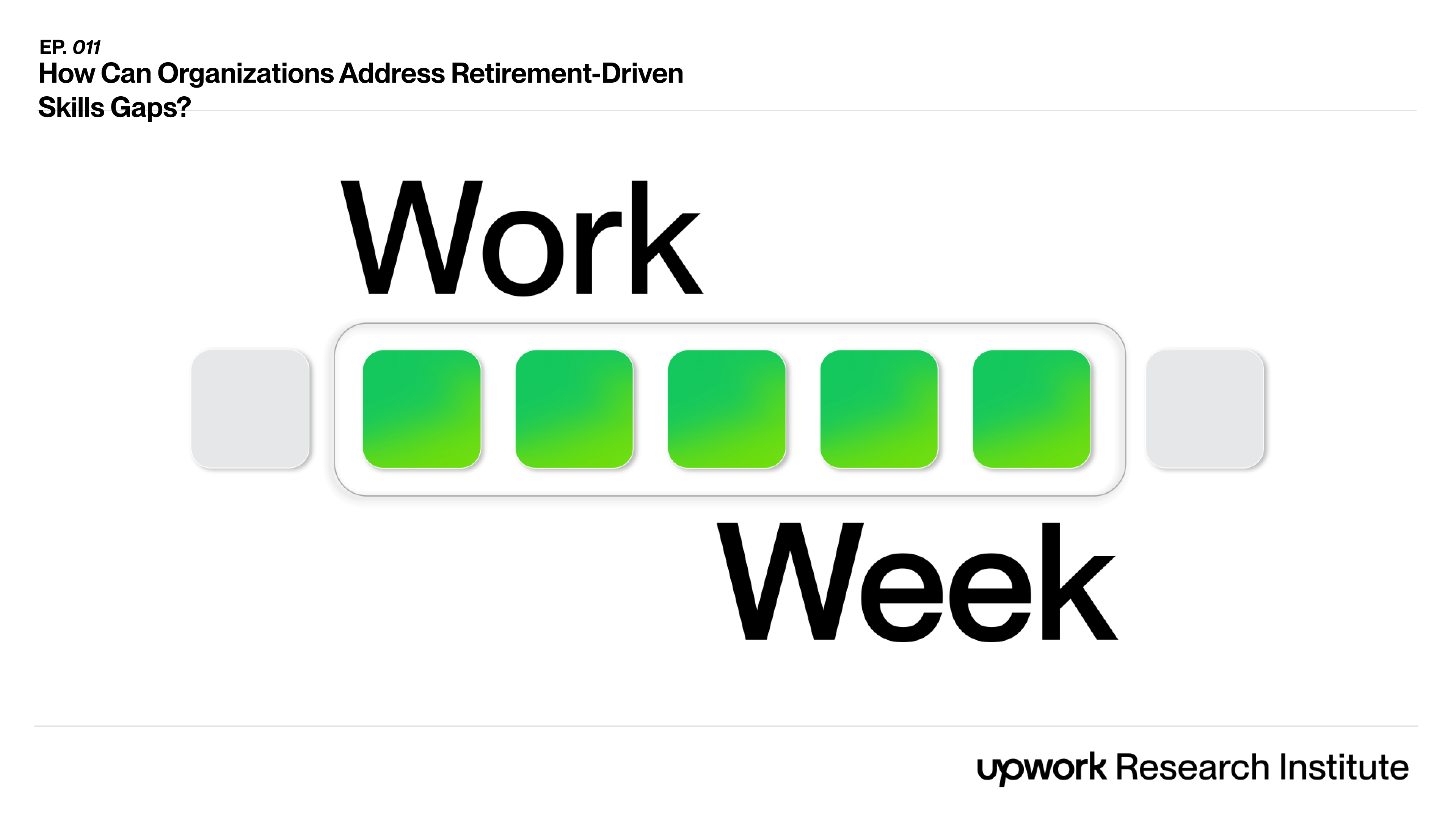
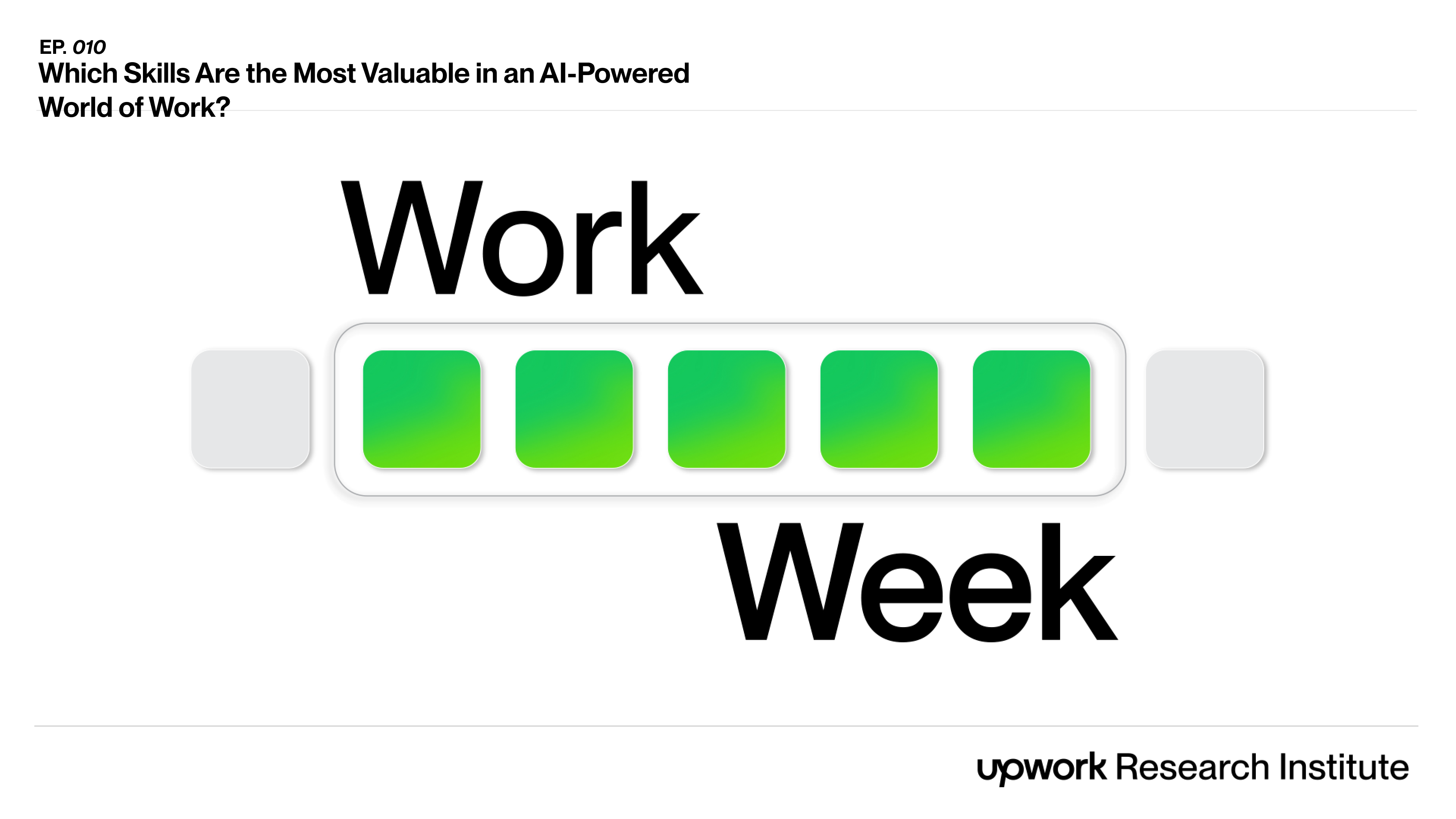
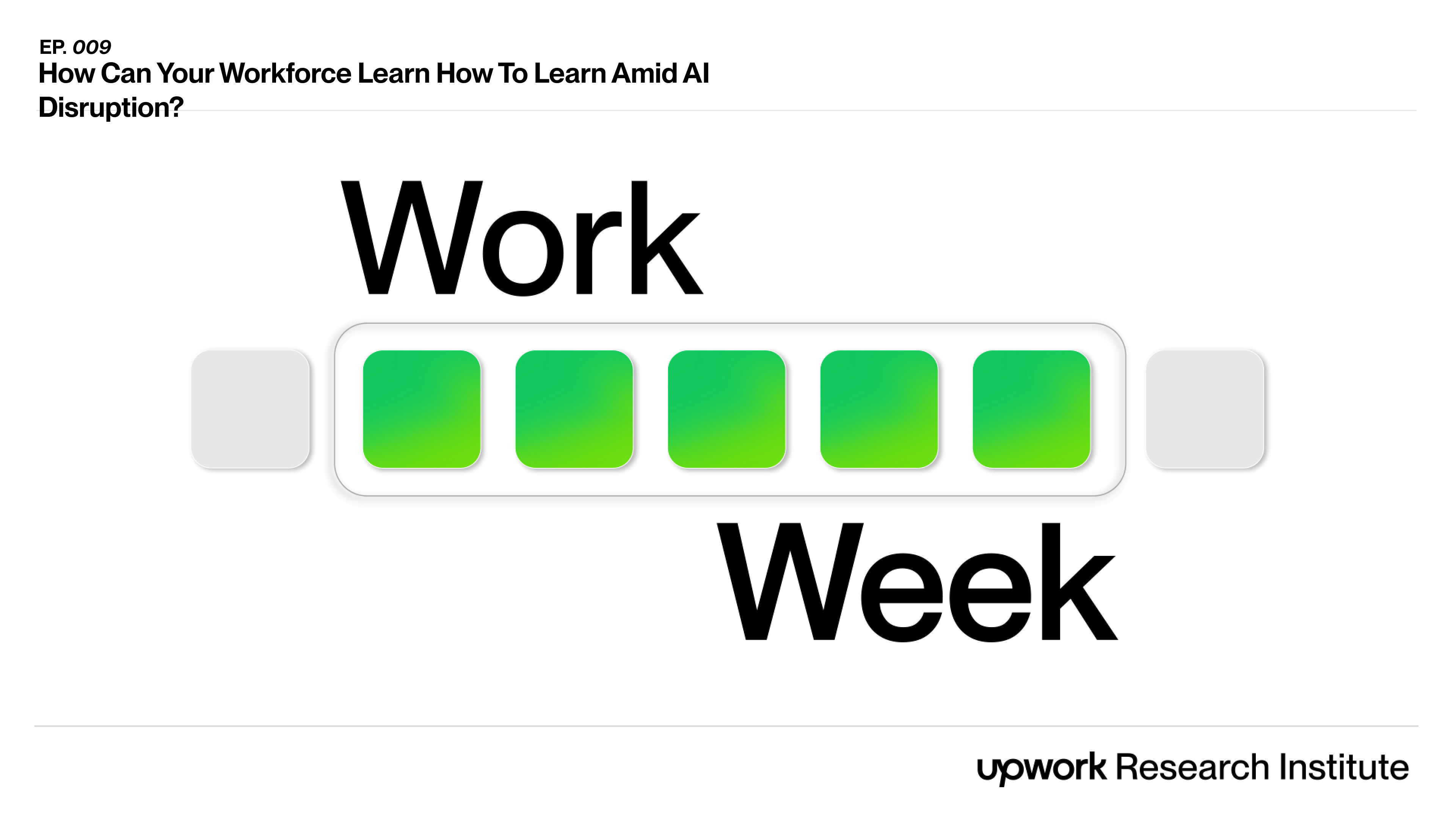
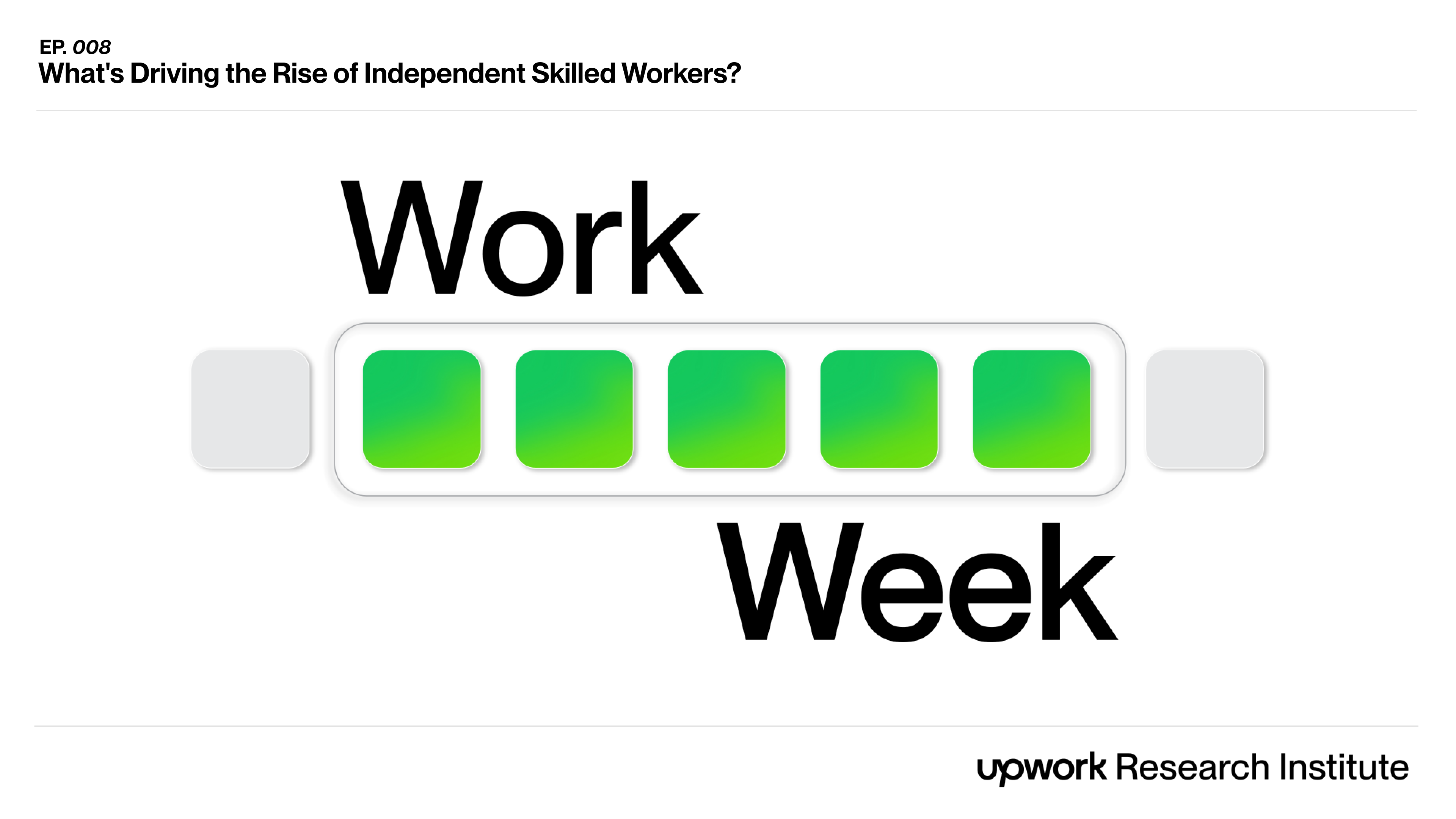
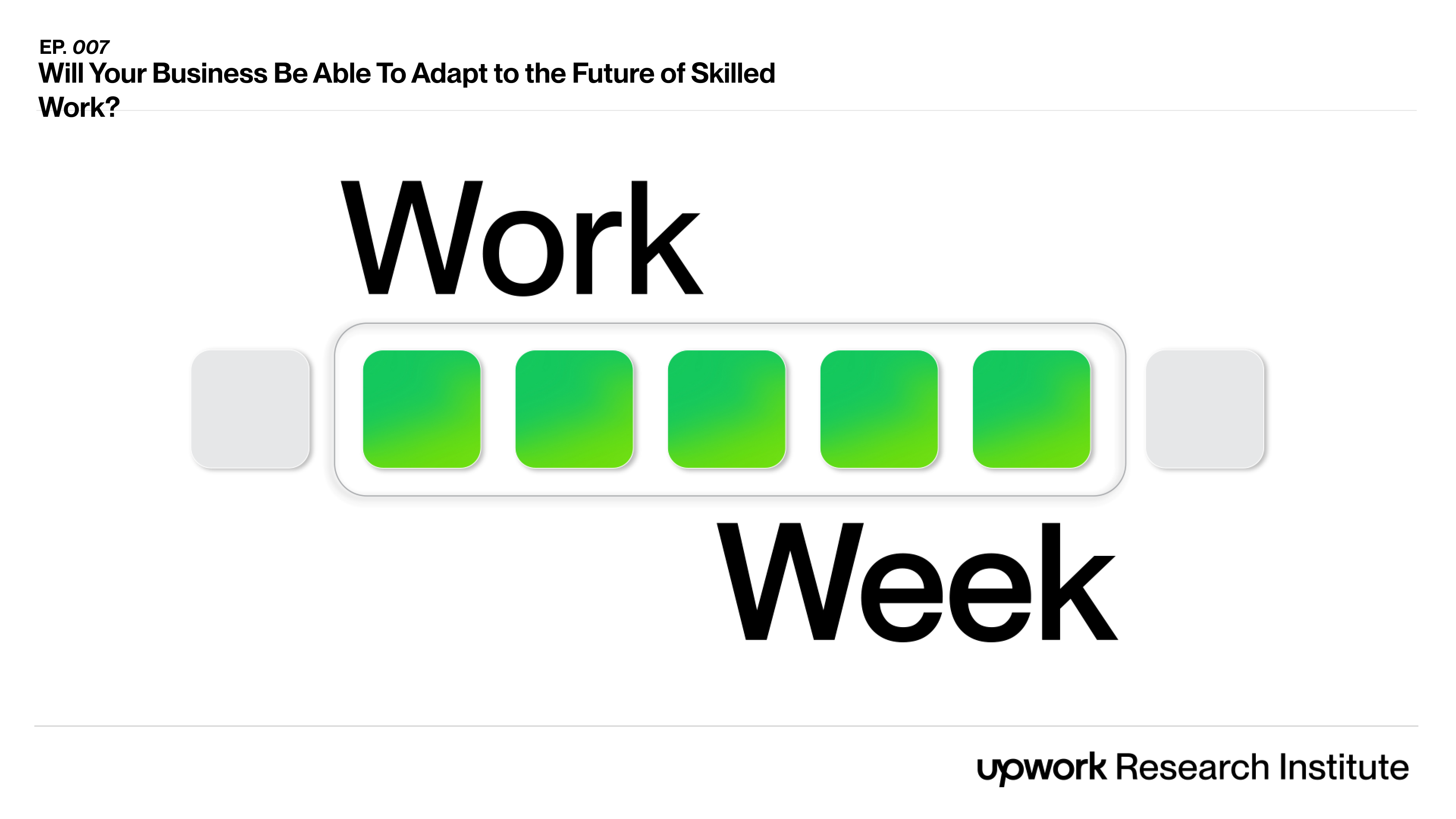
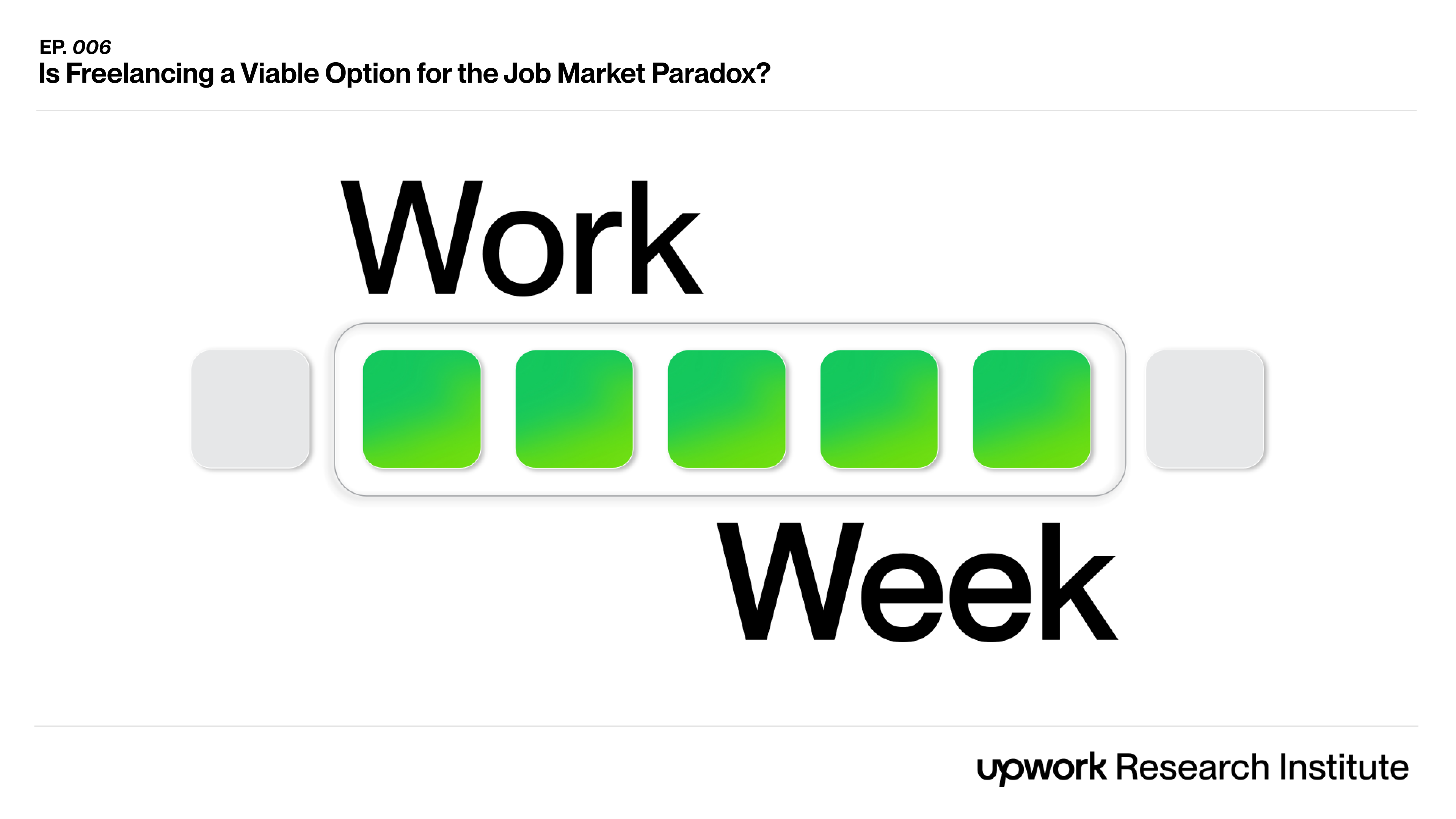
.png)
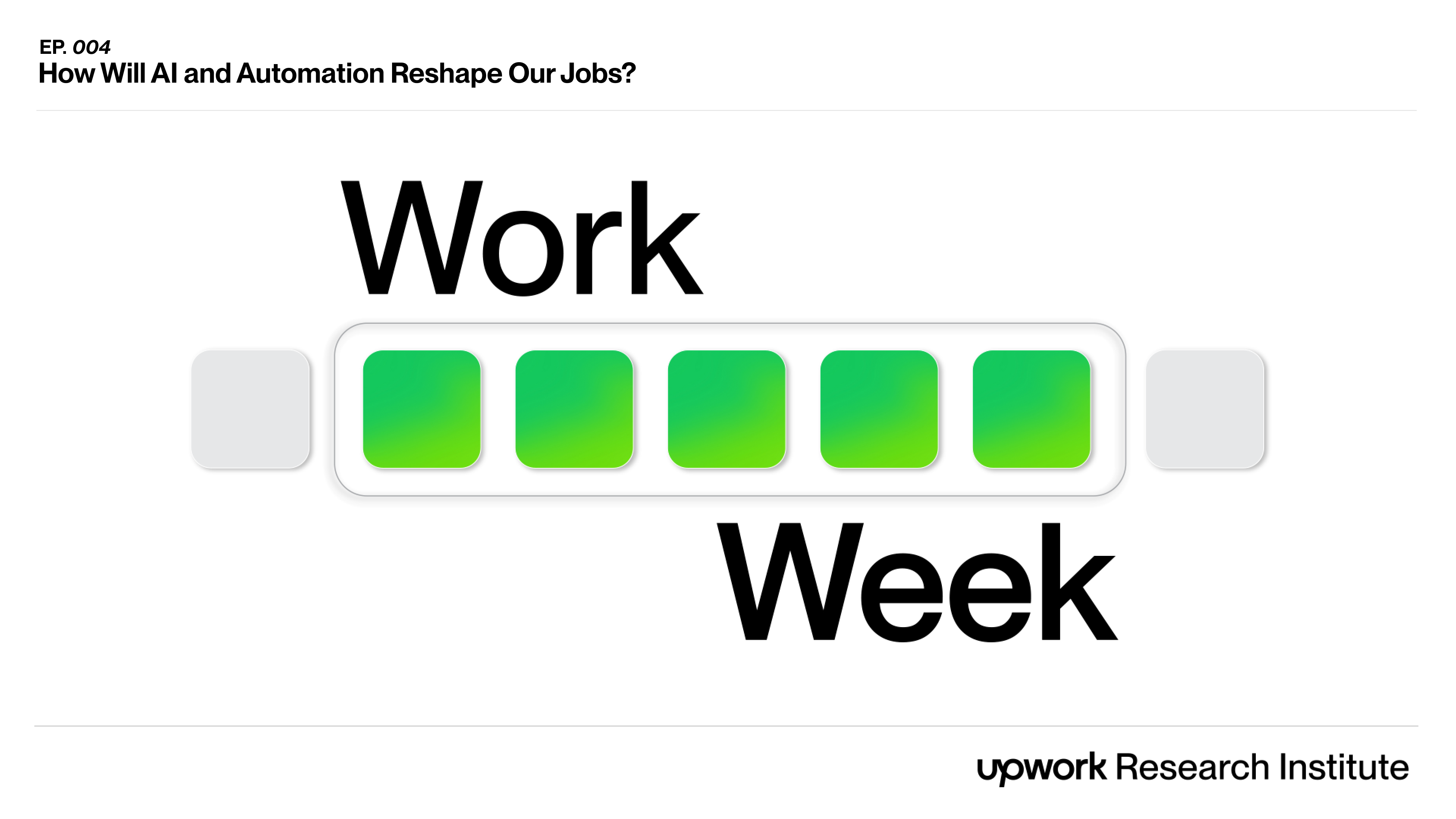

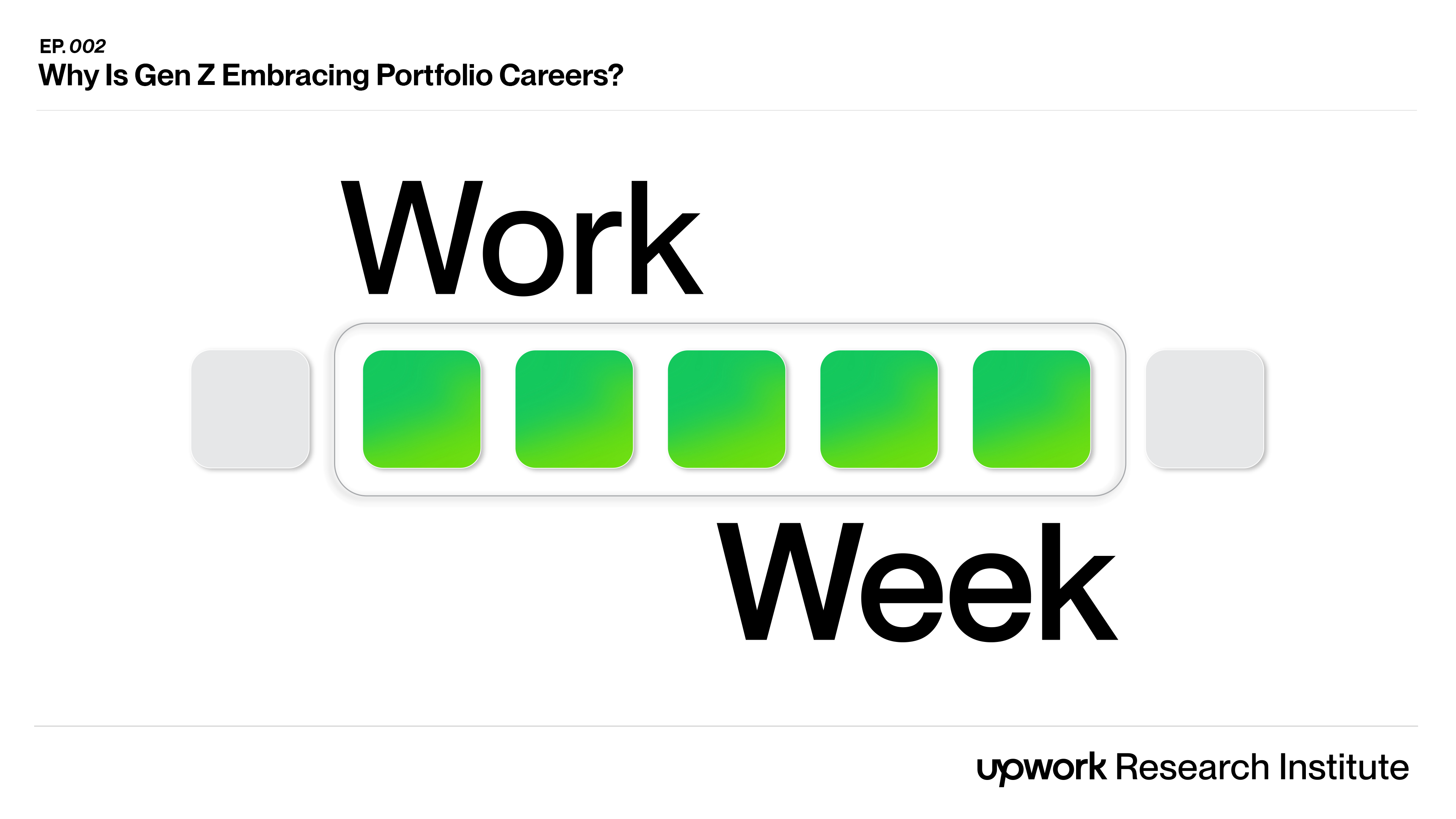
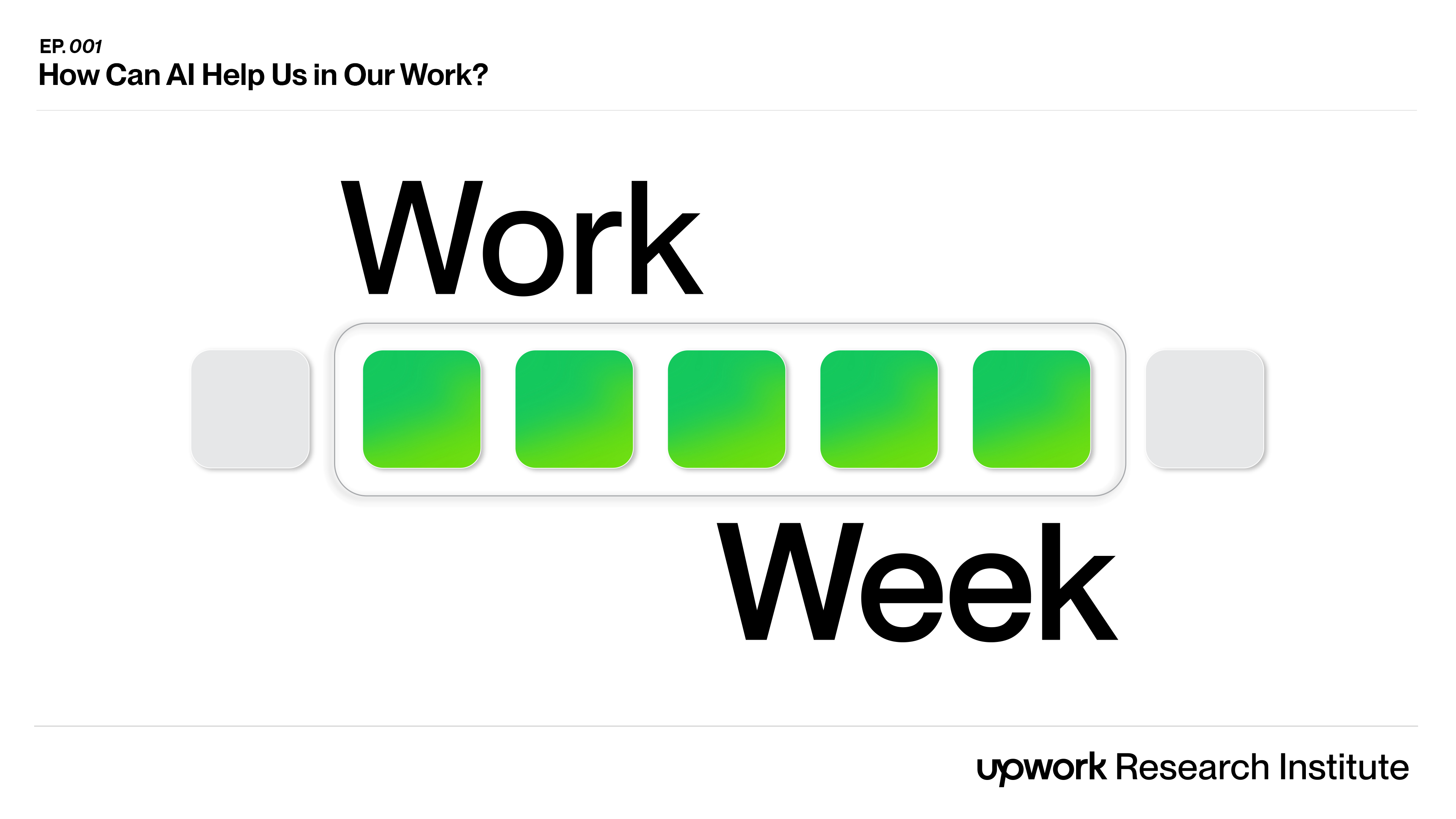
.jpg)